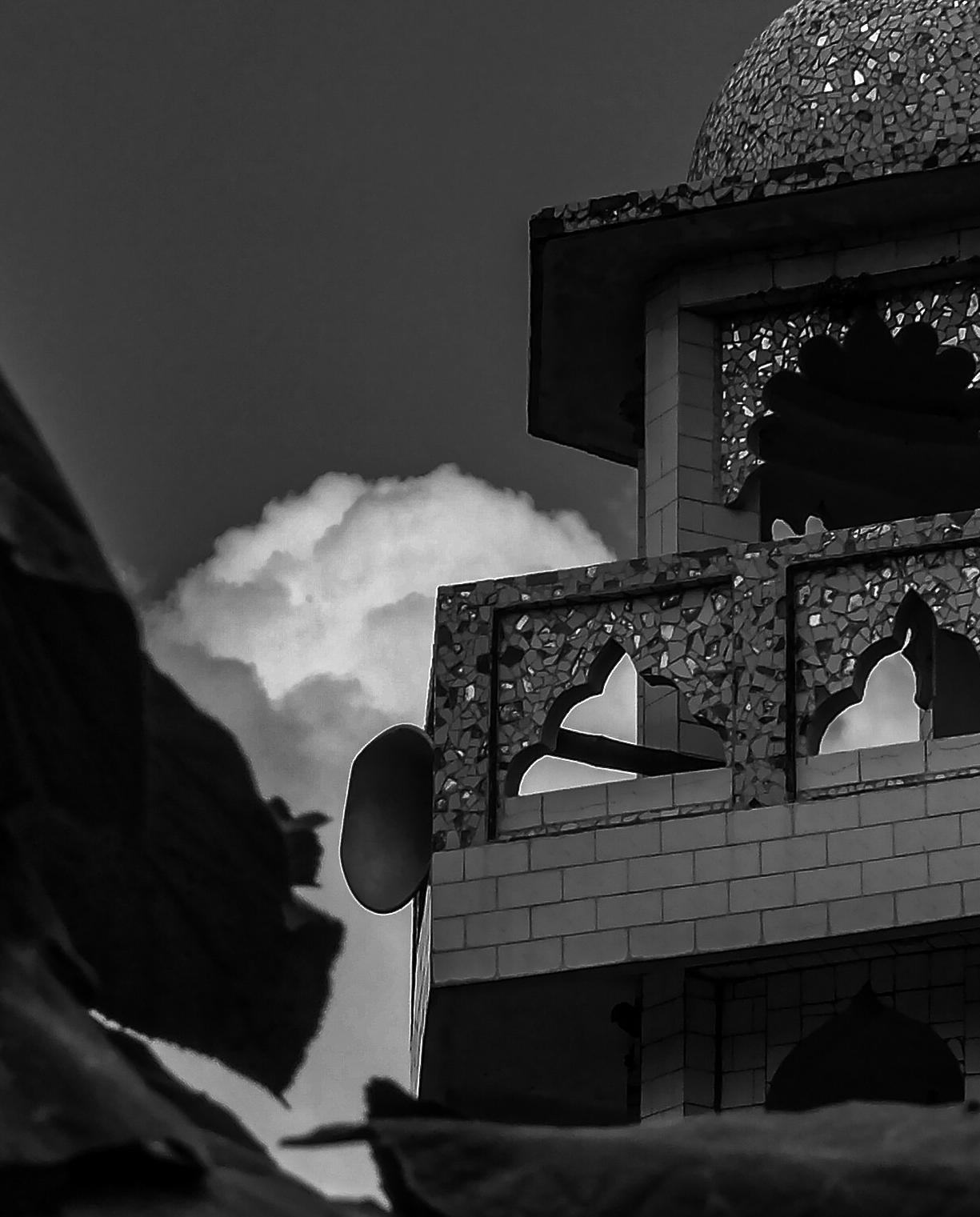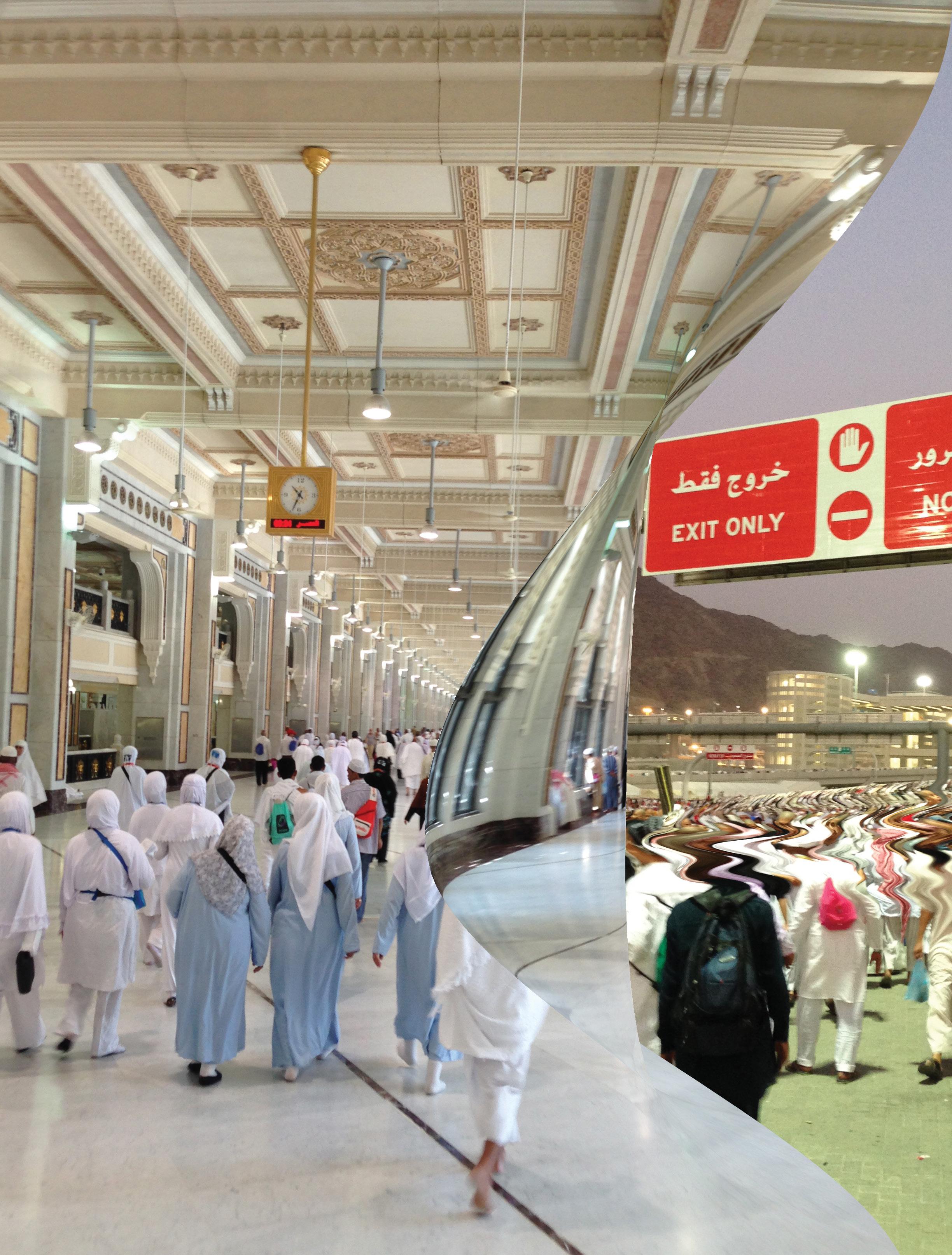
may/jun ‘24 volume 2 issue 9 INSIGHT Official Magazine of Darul Uloom CANADA
ChecklistforHaj and‘Umra p.15
Ethical Employment in Islam
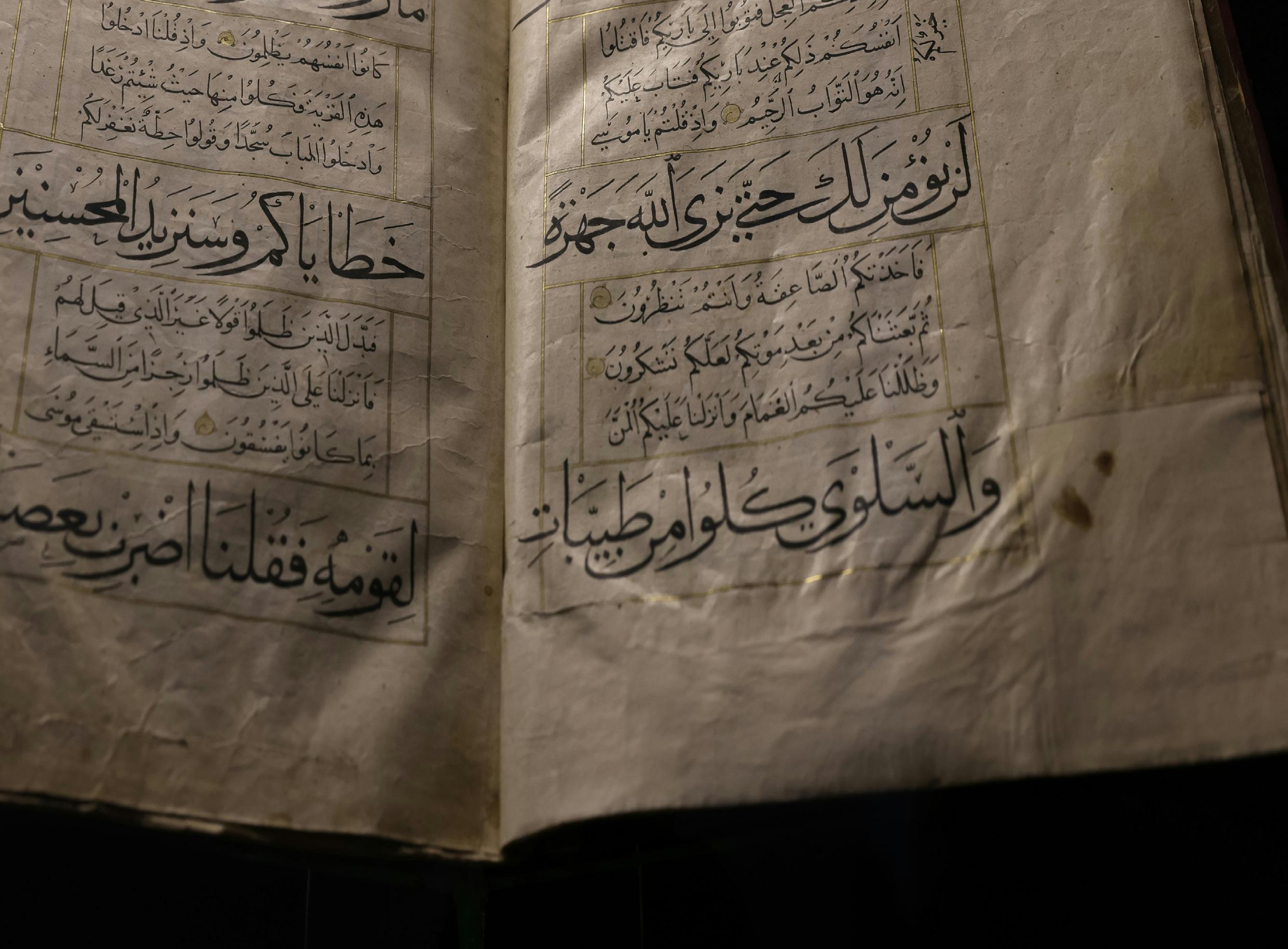

about the cover
Hajj season is in and the pilgrimage is about to draw the largest number of pilgrims to date and also one of the largest annual gathering of devotees in the world, all converging on Makka in the name of Allah. May Allah accept their haj and make it a means of the rahma and blessings of Allah we so desperately need. May Allah free the Gazan brothers and sisters of their plight by the du’as of our pilgrims at every juncture of the hajj process and in the blessed cities.
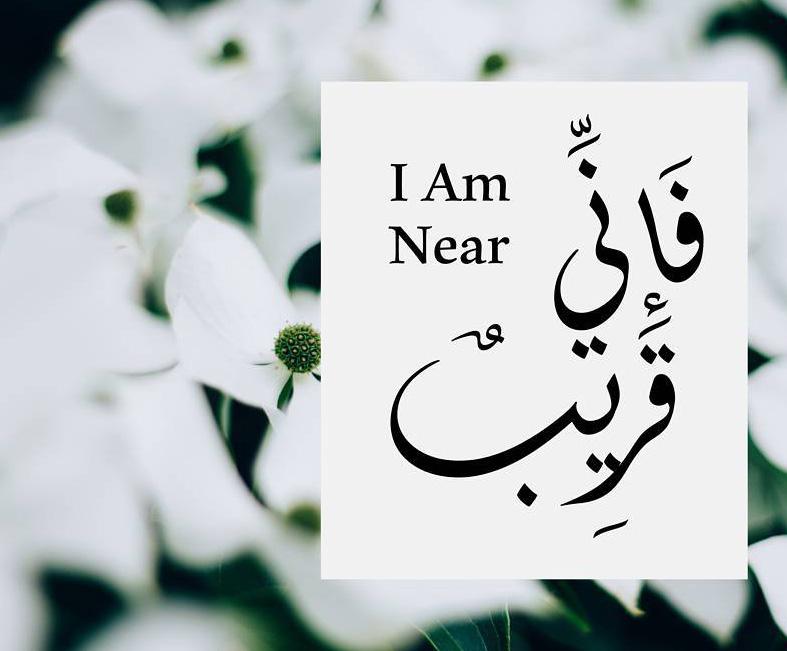
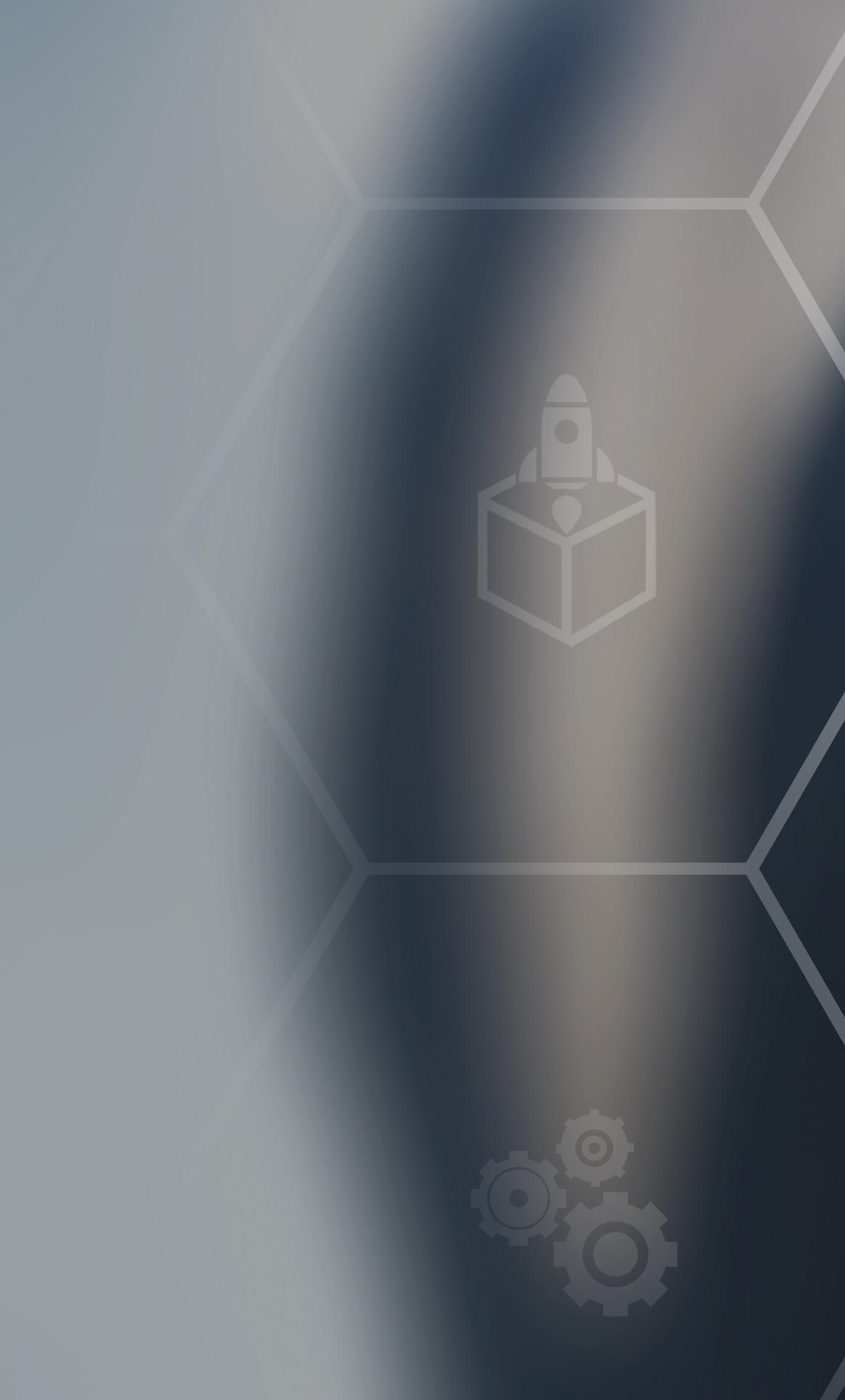
32


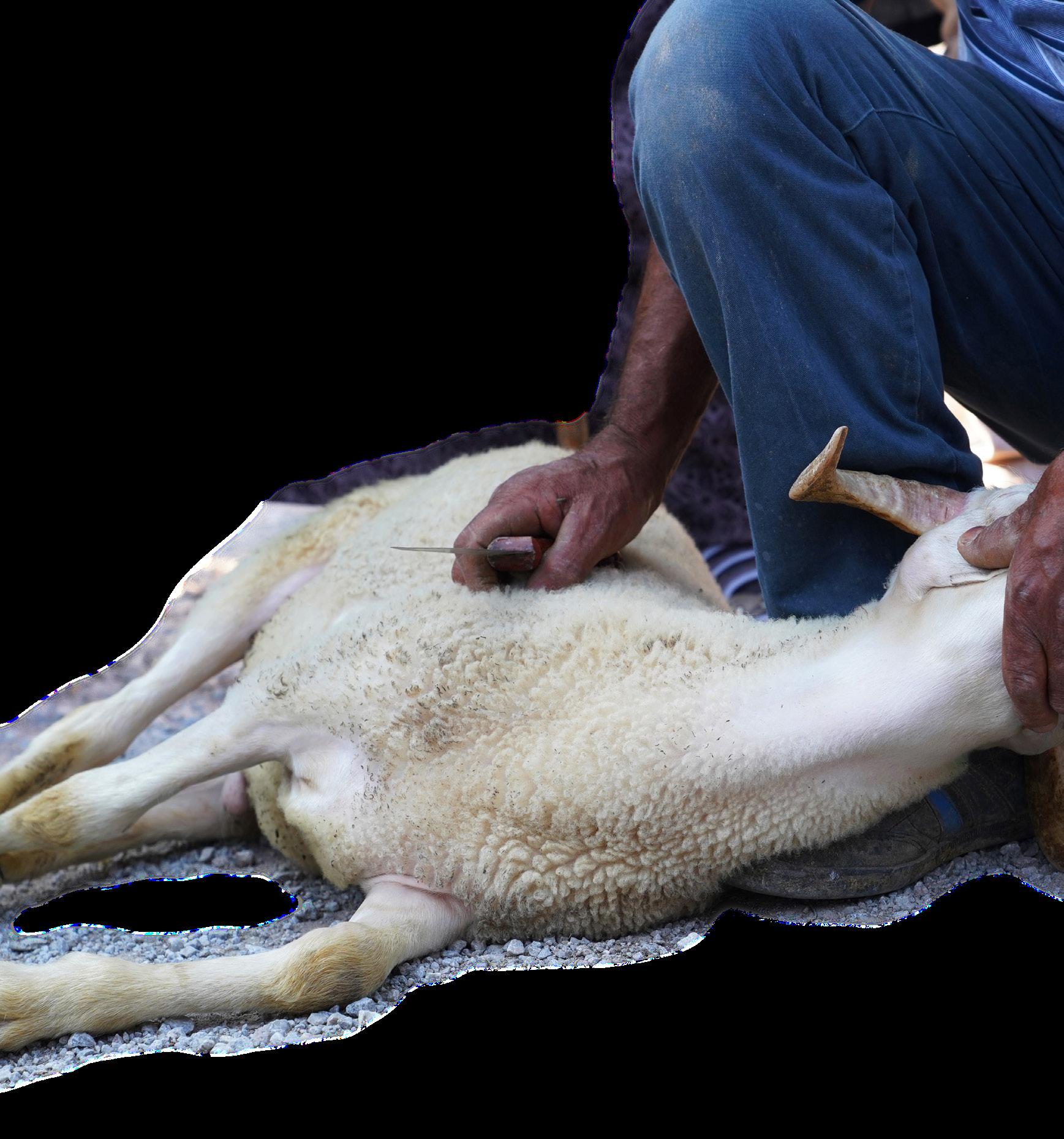
28 06 LearnArabic 12 28 16 EthicalemploymentinIslamhajjaandhowitrelatestothe5th pillarofIslamCallingeachotheragainstthe UmmaWhatisthe‘auraforaMuslimwoman andwhencanitbe uncovered? CreedWhoaretheAhlSunnawaal-Jama’aandwhatis theircreed? 32 CONTENTS ProphesyFatawa MyOpinion 20
EDITORIAL
Translating the Creed of the Ahl Sunna wa al-Jama’a was one of the toughest translations I had ever done. But it was expected considering it was about our Lord, our belief about Him and other necessaries of our creed. It was the work of Mujaddid of the Second Millennia, Shaykh Ahmad Sirhindi, better known as Mujaddid Alfe Thani. His maktubat to the leading figureheads, notable scholars, and noblemen of his time all of whom were his mureeds or, at the least, people inspired by him, rekindled the spirit of Islam in the Indian Subcontinent. The syncretistic tendencies in the Indian Subcontinent, promoted by many Mogul emperors like Akbar (1542-1605) out of political expediency, disfigured the true nature of Islam and threatened to snuff it out completely. Grave-worship and Hinduistic customs had infiltrated Muslim practice and belief giving birth to a host of bida’ that permeated the Subcontinental Muslim society.
This letter on the creed of the Ahle Sunna is a comprehensive, but concise treatise that Shaykh al-hadith Muhammad Zakariyya recommended to every student of knowledge. While translating this work, I was amazed at the esteemed author’s rationalization of our beliefs and saw the creed I thought I knew in a fresh new light. Despite its complexity, our belief was so simple and rational. But it is about our Creator and Sustainer, so naturally we cannot expect it to be an easy read. Readers should read it slowly and repeatedly if possible to soak in the reality of our Lord and His creation.
Patron
Hazrat Dr. Ismail Memon
Fatawa
Mufti Husain Ahmad Badri
Contributors
Mufti Omar Baig
Maulana Numan Cheema
Mayah uddin
Dr. Kamran Karatela
M. Zubair Ahmad
M. Ahmad Amin
Editor
Asim Ahmad
Contributions
“Before the Hajj is complete, pilgrims must return to Mecca to perform a ‘farewell tawaf’ around the Kaaba.” Al Jazeera English licensed under CC BY-SA 2.0.
“Pilgrims boarding buses, heading to Mina at the start of Hajj - Flickr - Al Jazeera English” l Jazeera English is licensed under CC BY-SA 2.0.
“Hajj 2008 - Flickr - Al Jazeera English” by Al Jazeera English is licensed under CC BY-SA 2.0.
“Hajj 2008 - Flickr - Al Jazeera English” by Al Jazeera English is licensed under CC BY-SA 2.0ik9o0es
Image by rawpixel.com</a> on Freepik
“’And when My Servants ask you, [O Muhammad], concerning Me - indeed I am near. I respond to the invocation of the supplicant when he calls upon Me. So let them respond to Me [by obedience] and believe in Me that they may be [rightly] guided.’ Holy Quran v” by IslamicPx is marked with CC0 1.0.
“Allah’s Name on tree Near Masjid Quba - panoramio” by Najamuddin Shahwani is licensed under CC BY 3.0.
Photo by Nathan Dumlao on Unsplash
Photo by Linus Mimietz on Unsplash
Photo by Hacı Elmas on Unsplash
Photo by Sauhard Chaurasiya on Unsplash
https://unsplash.com/photos/a-large-blueand-white-building-with-a-sky-background--SPaeV4qF5k?utm_content=creditShareLink&utm_medium=referral&utm_ source=unsplash
Photo by Alim on Unsplash
Photo by Bruno van der Kraan on Unsplash
4 INSIGHT MAGAZINE

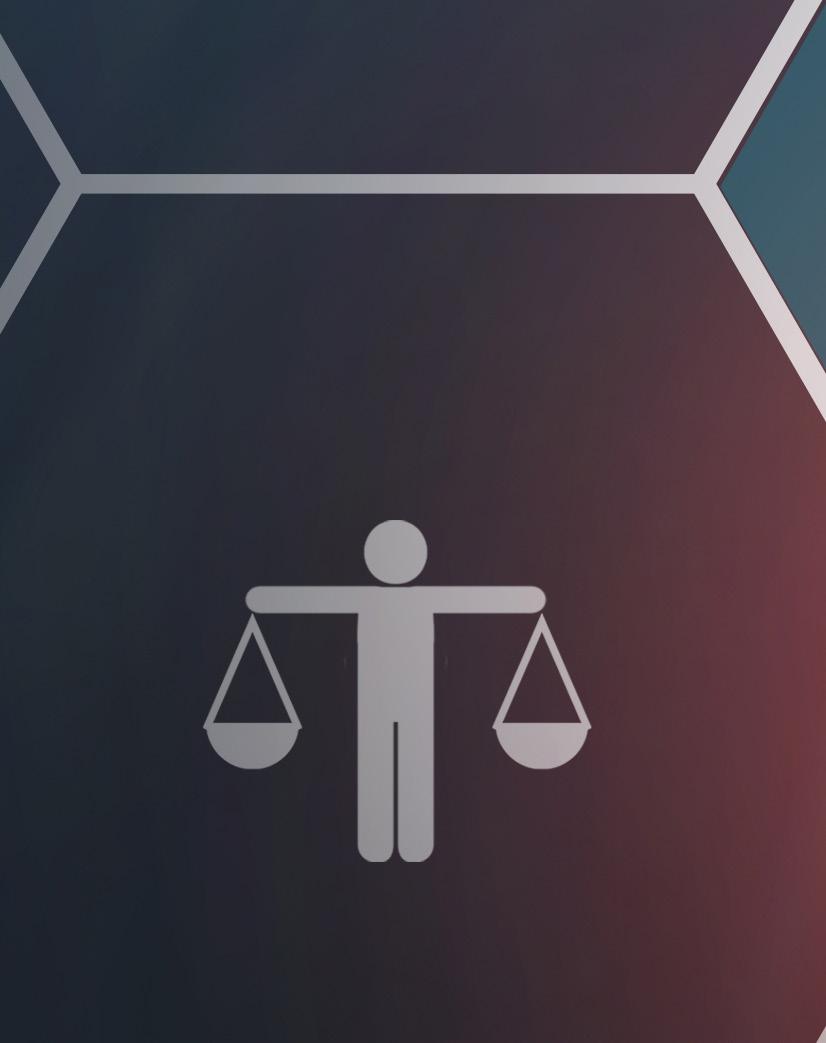
Ethical Employment in Islam
by M. Nauman Cheema
Islamic law, particularly the Hanafi1 school with its emphasis on the Quran, sunnat, ijma’ (consensus), qiyās (analogy), and individual reasoning provides a comprehensive framework for addressing the moral intricacies of employment in industries with potential conflicts with ethical principles. We seek to explore these considerations through a comprehensive
1. Focus of this analysis will primarily be the Hanafi school of thought and the implications there-in will be based on the school’s principles.
examination of juridical principles, focusing on intentionality, direct and indirect contribution to unethical actions, the objectives of law (maqāsid al-sharī’ah), and the balancing of harm (darar) and public interest (maslaha). The goal isn’t to draw binary conclusions, but rather to give a framework on how to approach such situations in professional workspace especially when working in an industry like defense contracting and weapons manufacturing.
Under Islam, the ethical dimension of one’s employment is significantly influenced
6 INSIGHT MAGAZINE
continued on p. 8
Etiquettes (Adab) of Salam
Adab- one should not say salam with hand gestures or with the fingers only as this is the greeting of the Yahud and Nasara, nor should one bow while greeting as it is forbidden in the hadith.


Note: Allama Teebi has also narrated from Muhiyy al-Sunna that to lower one’s head or back while greeting with salam is makruh because the authentic hadith forbids it though many people of knowledge and piety do this; but that (i.e., their practice) is not worthy of any consideration and is unreliable. Shaykh Abu Mansur states in Matalib al-Mu’mineen that if any person kisses the ground before someone or lowers his back or head, he will not be declared a kafir because the purpose is to show reverence and not to worship the person, but he will surely be sinful [end of quote]. Some of the shuyukh have been harsher in this regard and said, “This type of lowering is near to kufr.”
Adab: do not greet with salam someone who is urinating. And if one does then he should not respond. It is mentioned in the hadith that a man passed by the Prophet s a while he was in that state but the Prophet s did not respond.
Adab: to precede the alayka before the assalam is makruh. One person said salam in this manner to the Prophet s to which the Prophet s responded, “This is the salam of the deceased (i.e., this is the salam for the deceased when visiting the graveyard),” and the Prophet s repeated this three times. Then he said, “When anyone of you meets your Muslim brother, he should say Assalamu Alaykum wa rahmatullahi wa barakatuhu.”
Note: It is wajib to respond to the salam, and likewise, the who sneezes, immediately after. In other words, delaying the response is not permissible. If someone writes salam in a letter, it is wajib to write salam in response just as it is wajib to for the verbal response to be immediate. And if someone says, “Please give my salam to so and so,” then it is wajib upon the person to relay the salam (i.e., it is a trust which must be kept) or he has the option of refusing to take on the responsibility of relaying the salam. He can say, for example, “I will relay the salam if I remember, but I do not make any promises.”
To greet a shameless transgressor with salam is makruh. All these rulings are
taken from Durr al-Mukhtar.
Shaking hands while greeting with salam is a Sunna. It is mentioned in the hadith that when two Muslims meet and then shake hands, seventy maghfira are distributed between the two of them of which 69 goes to the most cheerful of them. In other words, each one will get reward according to the degree of cheerfulness they met each other in, while the second will receive one maghfira. The reason the first one receiving so much more reward is because he made the other joyful due to his own cheerful air, and to make another believer happy is an extremely rewarding act.
It is narrated that a sahabi came to the Prophet s and said the salam. The Prophet s was performing wudu at the time and did not respond. When he completed his wudu, he returned the salam and then shook his hands. The sahabi said, “O Prophet of Allah, Up to now, I thought of this act (shaking hands) as the custom of the non-Arabs (Ajam).” The Prophet s said, “When two Muslims meet in this way, their sins fall away like leaves from a tree.”
- taken from Uswat al-Saleheen by Shaykh Abdul-Haqq Muhaddith Dehlawi
OUR AKABIR
A nuanced ethical analysis under juridical principles also involves assessing the degree of one’s direct or indirect contribution to potential unethical outcomes.
by their underlying intention. This foundational principle necessitates a reflective consideration of one’s motivations for seeking employment within potentially contentious industries. This requires individuals to introspect about whether their work serves to support just and legitimate purposes or whether it inadvertently contributes to oppression or injustice.
A nuanced ethical analysis under juridical principles also involves assessing the degree of one’s direct or indirect contribution to potential unethical outcomes. This differentiation is critical, as the degree of ethical
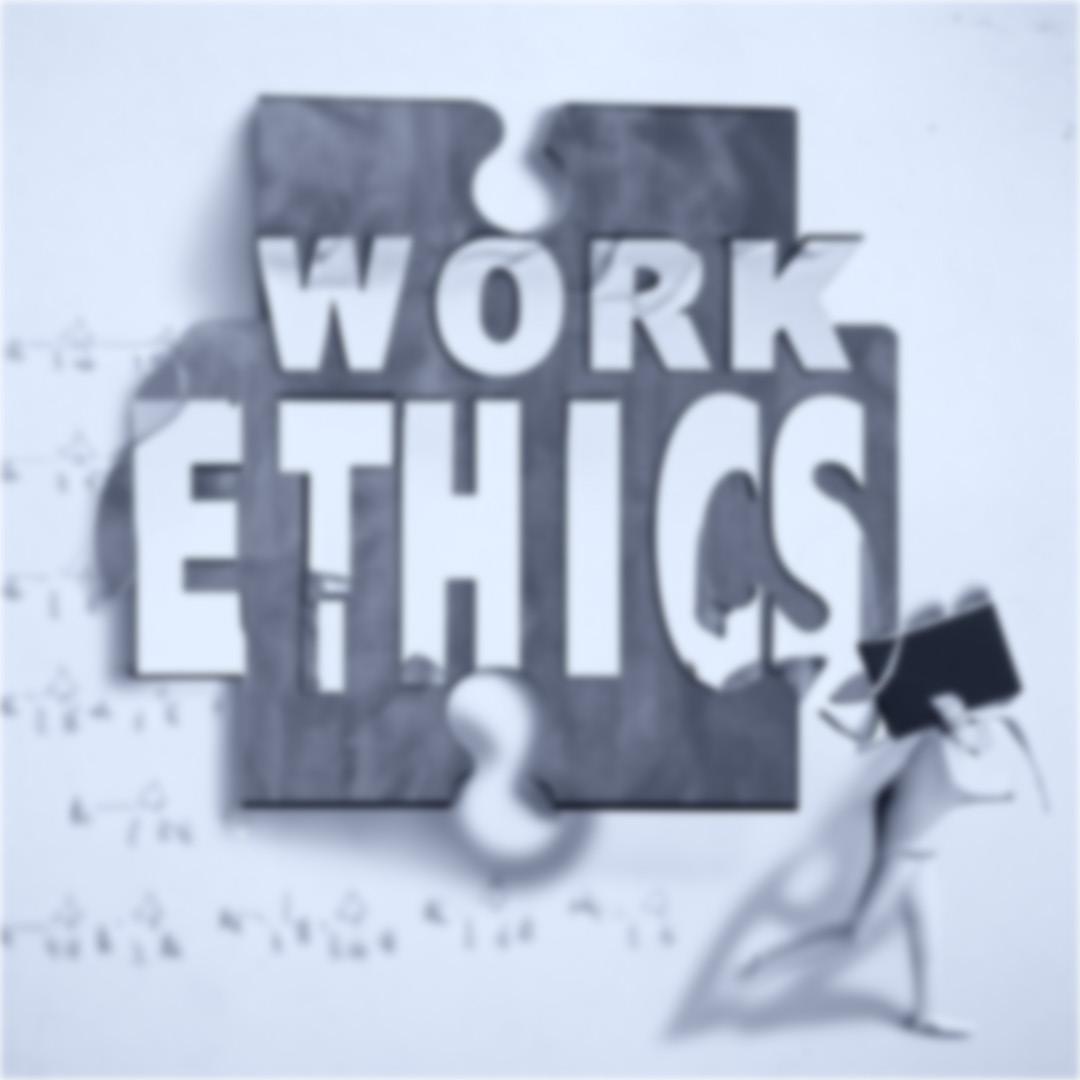
responsibility varies significantly based on one’s role within the organization. An employee directly involved in designing or manufacturing weapons bears a different ethical responsibility from those in ancillary roles. This distinction draws upon the principle of causation (sababiyah), which examines the links between one’s actions and their outcomes.
An illustrative example of direct versus indirect involvement and its ethical implications can be drawn from financial transactions, specifically the issue of usury (riba). Engaging directly in giving or taking usury is explicitly prohibited and considered a major sin due to its explicit prohibition in the Qur’ān. For instance, a person (Person A) who lends money with interest directly contravenes shari’ah’s prohibition of usury, bearing significant ethical responsibility for engaging in an explicitly forbidden action. Conversely, consider a person (Person B) employed by the same financial institution that deals with interest in some transactions but whose role is strictly administrative, such as software development, without any direct involvement in the usury transactions themselves. While the
8 INSIGHT MAGAZINE

institution may engage in prohibited financial practices, Person B’s indirect involvement through a non-financial role places them in a less direct ethical responsibility compared to someone actively engaging in or facilitating usury transactions2.
Another central tenet in evaluating the permissibility of employment within defense contractors from a juristic perspective is the consideration of the products’ end use considering the objectives of law (maqāsid al-sharī’ah). This involves an analysis of whether the defense products contribute to the preservation of life, property, religion, lineage, and intellect, or whether they are used for purposes that contravene these objectives. The
2. While such indirect involvement is less culpable, scholars suggest that individuals should strive for employment that aligns more closely with ethical principles, reflecting the nuanced understanding of direct versus indirect involvement in actions contrary to Islamic law.
ethical evaluation thus extends to the geopolitical and social realities in which these products are utilized, requiring a discerning understanding of the broader implications of one’s work. Take for example a Muslim engineer who is considering a job offer from a defense contractor that designs surveillance systems. The evaluation from a juristic perspective, particularly within the framework of maqāsid al-sharī’ah, requires the engineer to assess whether these systems will be used to safeguard communities, protect nations, and preserve life and property, aligning with the objectives of sharī’ah. If the surveillance technology is used to oppress people, infringe on privacy unjustly, or harm innocents, it contradicts the maqāsid al-sharī’ah. The engineer must weigh the potential uses and impacts of their work considering Islamic ethics, considering the broader
9 INSIGHT MAGAZINE
geopolitical and social context to ensure their employment does not contribute to actions that undermine the core objectives of sharī’ah.
The principles of darar and maslaha occupy a central place in ethical considerations regarding employment as well. The jurisprudential challenge lies in navigating the fine line between personal gain and societal harm, aiming to ensure that one’s employment does not facilitate injustice or violence. This balancing act is reflective of the broader ethical imperative to contribute positively to society and to avoid actions that result in harm or injustice. To illustrate the principles of darar and maslaha in the context of employment, let’s consider a hypothetical scenario involving an engineer who is highly skilled and has received a job offer from a company that develops navigation systems for military drones. While the position offers this engineer a substantial salary, excellent career progression opportunities, and the chance to work on cuttingedge technology, he is aware that the drones equipped with his company’s navigation systems are used in military operations that have resulted in civilian casualties in conflict zones, especially Muslim ones. He considers the potential benefits (maslaha) of his work. The navigation systems he would develop
could enhance the precision of military drones, potentially reducing collateral damage in conflict situations. His work could contribute to national defense and security, aligning with the objectives of law (maqāsid al-sharī’ah) related to the preservation of life and property. On the other hand, he must also be concerned about the darar (harm) associated with his potential employment. He recognizes that despite the intended precision of the technology, the use of drones in military operations has led to loss of innocent lives and destruction of property, contributing to societal harm and injustice. This is the type of balancing act that would require an in-depth analysis of one’s employment to navigate the ethical dilemmas associated with one’s employment.
The jurisprudential challenge lies in navigating the fine line between personal gain and societal harm, aiming to ensure that one’s employment does not facilitate injustice or violence.
10 INSIGHT MAGAZINE
continued on p. 14
Zakat Made Easy
by Mufti Omar Baig
Author: Mufti Faraz Adam
Publisher: Amanah Advisors Press
Pages: 176
In today’s world, calculating zakat has become a daunting task for most of us. Despite being an annual obligation, many struggle with accurately determining their zakat amount, which can be attributed primarily to a lack of understanding regarding the principles of zakat. As a result, many are unsure about which assets are “zakatable” and who qualifies as a legitimate recipient of zakat.
During Ramadan, discussions around zakat are at their peak. As someone who personally answers many zakat questions during Ramadan, I needed a book that I could quickly use to double-check zakat-related issue. Alhamdulilah, during this past Ramadan, I had the chance to use Zakat Made Easy by Mufti Faraz Adam and found it to be an invaluable tool, providing practical and useful guidance.
Personal & Business Zakat Calculations: Unlike other books that focus solely on personal zakat, Zakat Made Easy has separate sections dedicated to personal and business zakat calculations. This allows readers to easily navigate and use the formulas provided for each type of zakat.
Clarifying Differences of Opinion: With varying opinions on certain aspects of zakat, it can be overwhelming for readers to understand which opinion to follow. However, Mufti Faraz Adam handles this issue with great finesse by mentioning the differences of opinion without getting into excessive detail. This provides readers with a well-rounded understanding of zakat while still being concise and to the point.
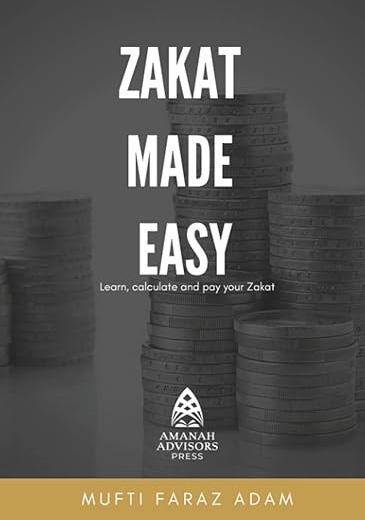
Zakat Made Easy is a comprehensive guide that simplifies the complex calculations of zakat and provides a modern and thorough perspective on this important pillar of Islam. Although I have not had the chance to read the entire book cover-to-cover, I used it extensively and found it to be one of the best books on Zakat I have ever read in English. Below are some unique aspects of the book:
Comprehensive: The book starts by explaining the meaning and history of zakat, providing readers with a strong foundation to understanding the importance of this obligation. It then delves into the conditions and methods of calculating zakat, leaving no room for ambiguity. The language used throughout the book is simple while the explanation for each point is adequate and succinct, making it perfect for beginners learning about zakat and even scholars who just need a refresher.
In-depth Coverage of Zakat on Invesments: Many Muslims invest in various assets such as real estate, cryptocurrencies, stocks, and NFTs. Zakat Made Easy stands out from other zakat books by providing detailed discussions on how to calculate zakat on these investments. It also elucidates different types of retirement accounts and how to go about calculating zakat on those accounts.
Discussion on Deducting Debt & Taxes:
Another unique aspect of this book is its thorough explanation of deducting debt and taxes when calculating zakat. This can often be confusing for many, but the book simplifies it by providing practical examples and scenarios.
Zakat Made Easy is an invaluable resource for every Muslim looking to fulfill their zakat obligations with confidence and ease. It simplifies the calculations and provides readers with a deeper understanding of zakat, making it a must-read for every Muslim seeking knowledge on this important pillar of Islam. So, if you are looking to enhance your understanding and fulfill your zakat obligations in the best possible way, be sure to add Zakat Made Easy to your reading list.
Where to Buy?
Zakat Made Easy is available for purchase on Amazon.
BOOK REVIEW
11 INSIGHT MAGAZINE
HAJJAJ
one who has performed many hajj; also a name.
HAJJ UN
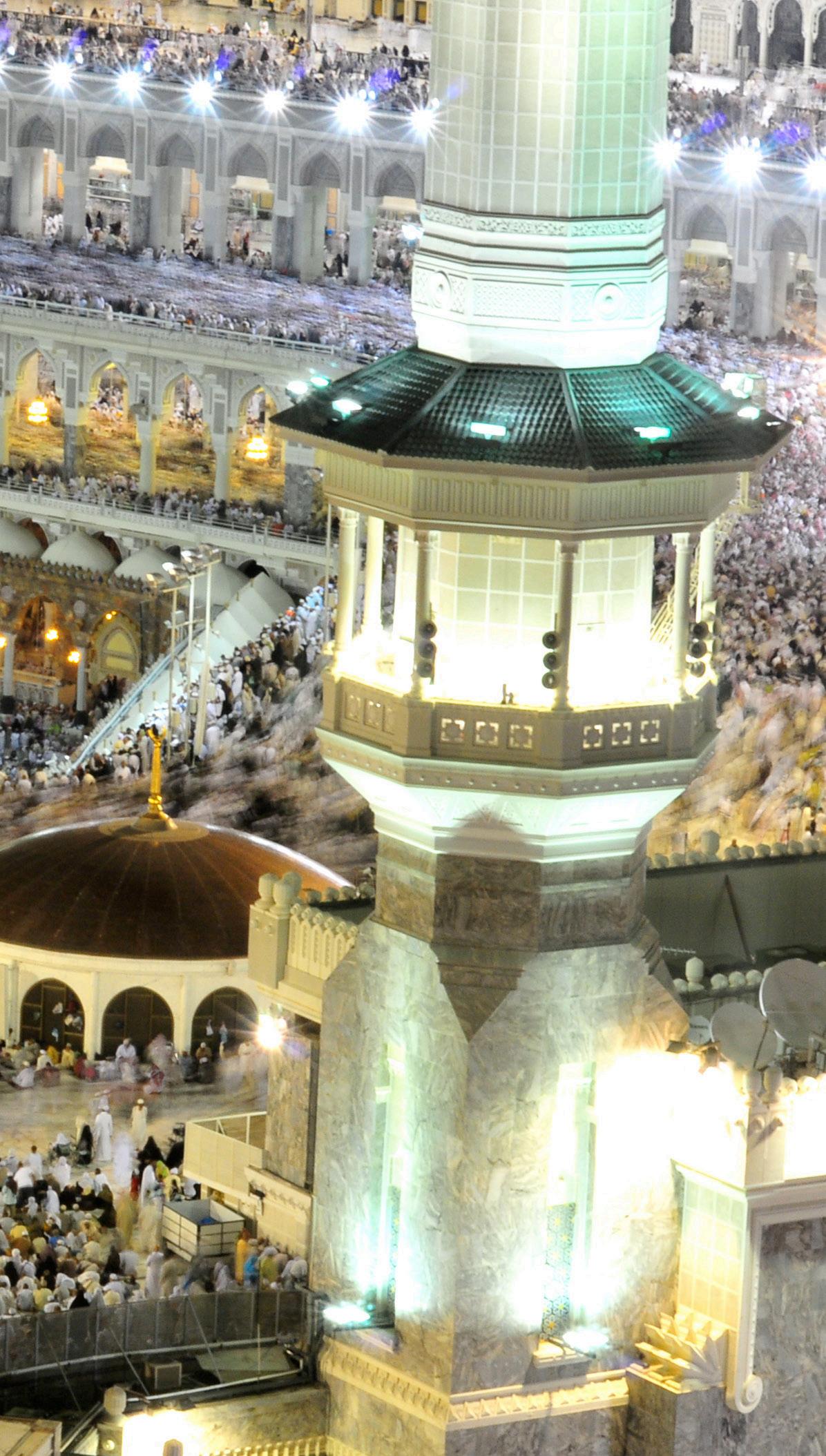
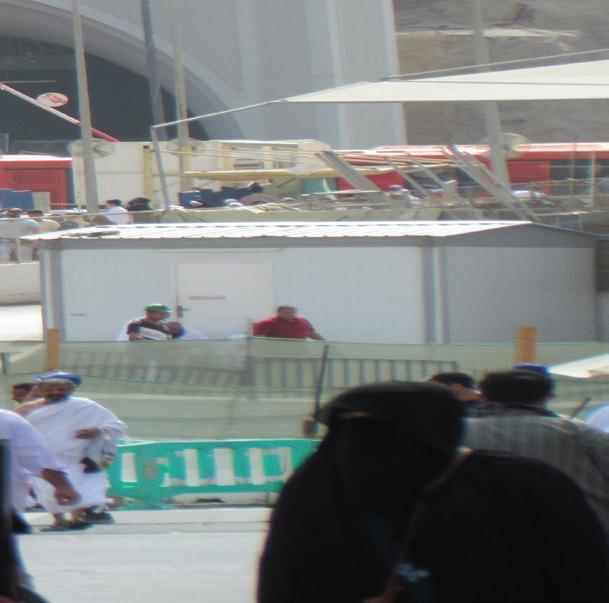

HIJAAJ
the supra orbital bone upon which the eyerbrow grows; the bone surrounding the eye cavity.

HIJJA/ p . HIJAJ
a year, so thalatha hijajin would mean three years.
LEARN ARABIC
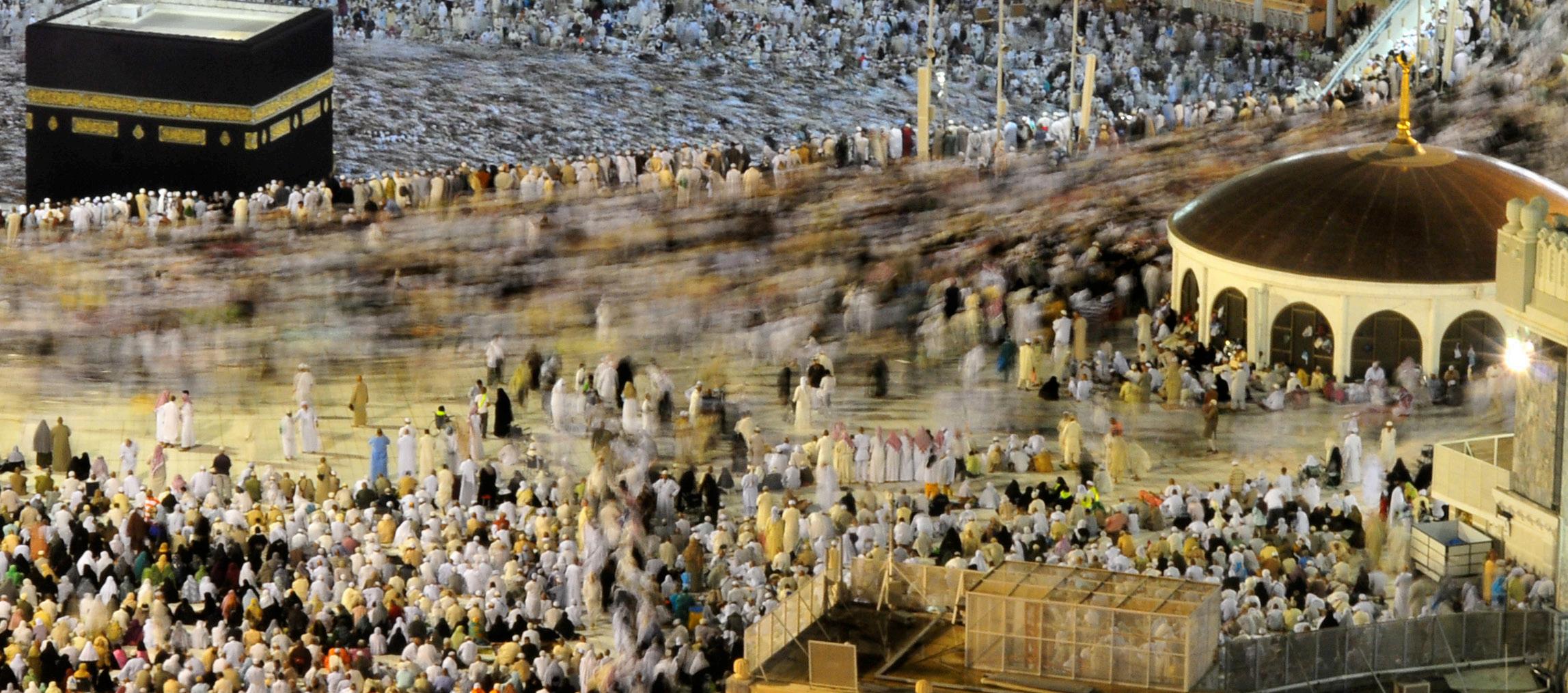

hajja yahujju means to ‘intend’ or to visit whereby the thing/ person becomes mahjujun (intended; the purpose). Often, it is used for something that is visited frequently. Since hajjis would visit Makka al-Mukarrama often, the term came to be used for the pilgrims of hajj. But there are other core meanings to the root like to ‘convince or argue’ and ‘defeat with evidences’. The Prophet s said, “If Dajjal comes when I am present, I will be his hajeej against Dajjal” [Muslim].
HIJAAJ
AL-SHAMS
the upper disk of the sun when it first appers on teh horizon. Also known as the horn of the sun
HAJEEJ
a group/ of hajjis
AL-
TAHAAJJU litigation; argumentation
HIJJA/ HAAJJA the earlobe
MAHAJJA destination; goal; object of pilgrimage
13 INSIGHT MAGAZINE

In conclusion, Islamic jurisprudence, offers a rich and nuanced framework for navigating the ethical complexities of employment in industries that may conflict with Islamic ethical principles. By emphasizing intentionality, the degree of direct and indirect involvement in potentially unethical actions, and the objectives of shari’ah, alongside the principles of harm and public interest, this framework enables individuals to make informed decisions about their employment. It encourages a reflective and principled approach to professional choices, urging Muslims to consider the broader implications of their work on society and to strive for roles that align with the ethical and moral teachings of Islam. Through this comprehensive examination, it becomes evident that the Islam provides valuable guidance for those seeking to balance personal professional aspirations with the imperative to uphold justice, minimize harm, and contribute positively to the welfare of society.
References
Beekun, Rafik Issa, and Jamal A. Badawi. “Balancing Ethical Responsibility among Multiple Organizational Stakeholders: The Islamic Perspective.” *Journal of Business Ethics*, vol. 60, no. 2, 2005, pp. 131-145. Emerald doi:10.1108/13527600810848791.Insight,
Ali, Abbas J. “Islamic Challenges to HR in Modern Organizations.” *Journal of Business Ethics*, vol. 111, no. 4, 2012, pp. 443-451. Springer, doi:10.1007/s10551012-1246-1.
Noor, Mohd Roslan Mohd, et al. “The Application of Islamic Ethics in the Workplace: A Study in Malaysian Public Sector.” University Teknologi MARA, 2020, https://ir.uitm.edu.my/id/eprint/31081/. Azmi, Iftikhar Ahmed, et al. “Islamic Work Ethics and Economic Development in Islamic Countries: Bridging Between Theory and Reality.” *ResearchGate*, Feb. 2021, https://www.researchgate.net/publication/349662003
Agrama, Hussein Ali. “Islamic Law, Truth, Ethics: Fatwa and Jurisprudence of Belonging.” *Comparative Studies of South Asia, Africa and the Middle East*, vol. 38, no. 1, 2018, pp. 107-120. Duke University Press, doi:10.1215/1089201x-4349097.
Kamali, Mohammad Hashim. *Maqasid Al-Shariah Made Simple*. International Institute of Islamic Thought (IIIT), 2008. Google Books,
14 INSIGHT MAGAZINE
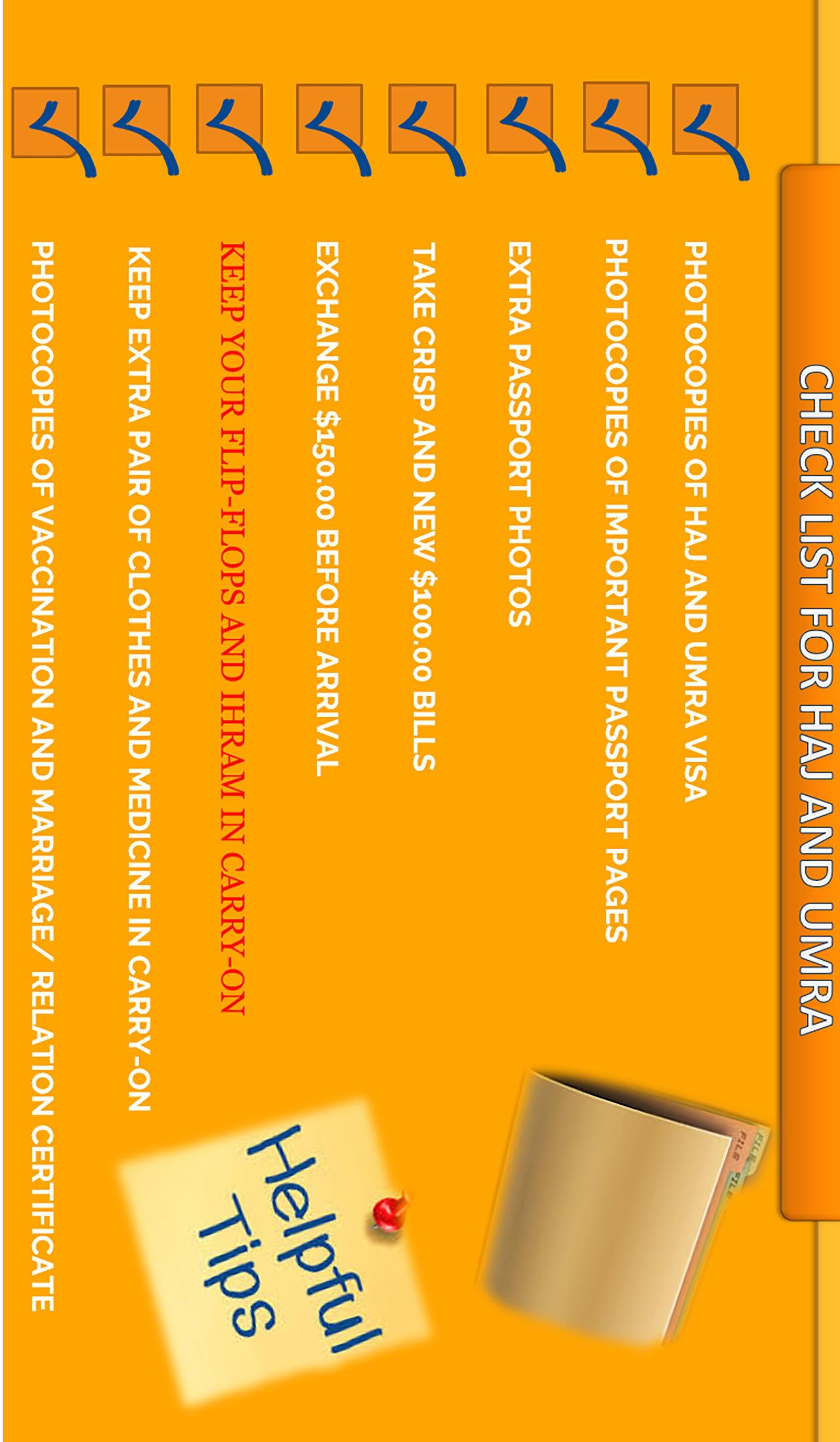
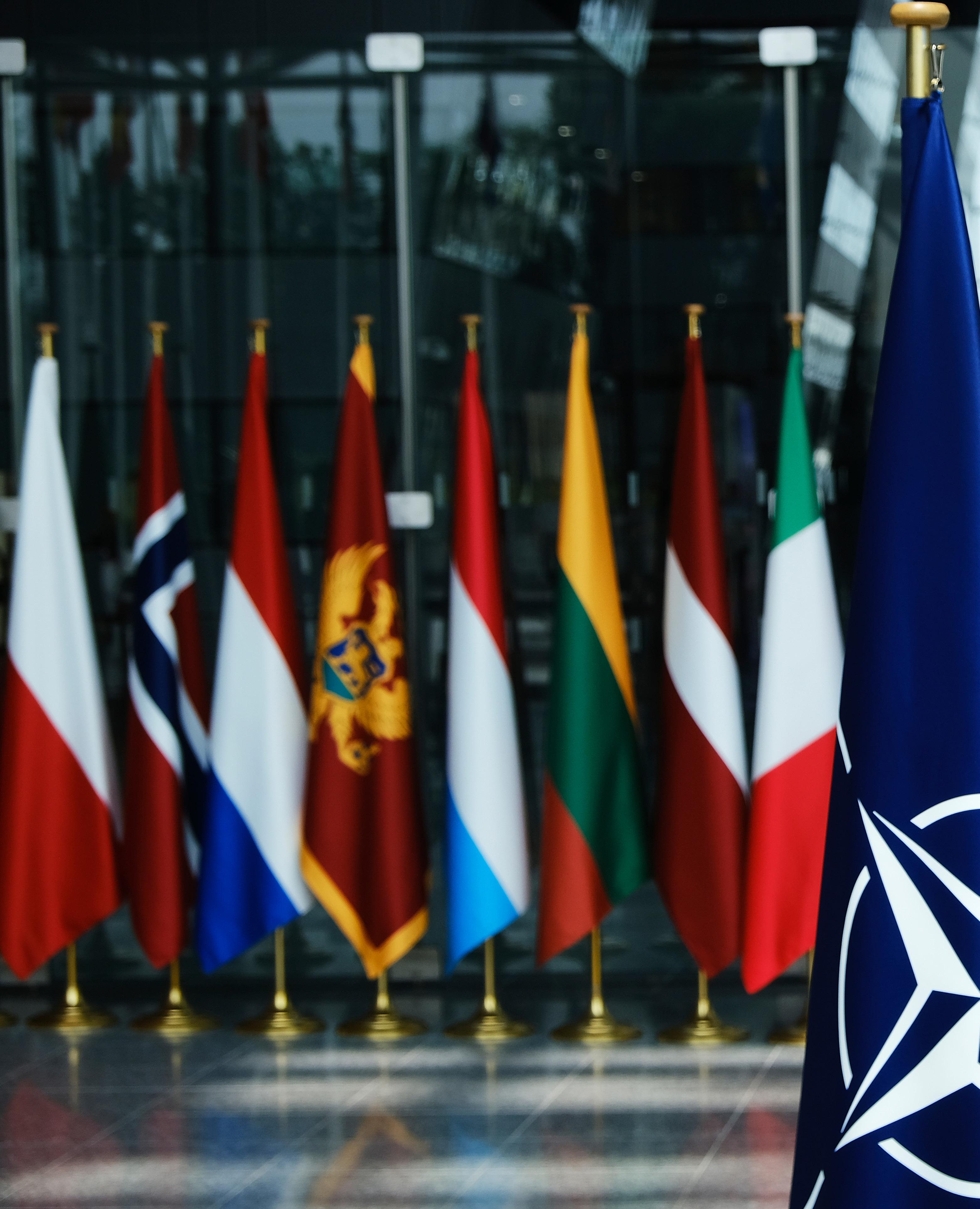
The Prophet s said, “Nations will join each other against you the way people invite quietly, some abetting while others spectating

invite others to their food” (Bukhari). The 32 signing members of NATO stand by spectating as the conflict continues in Gaza.

18 INSIGHT MAGAZINE
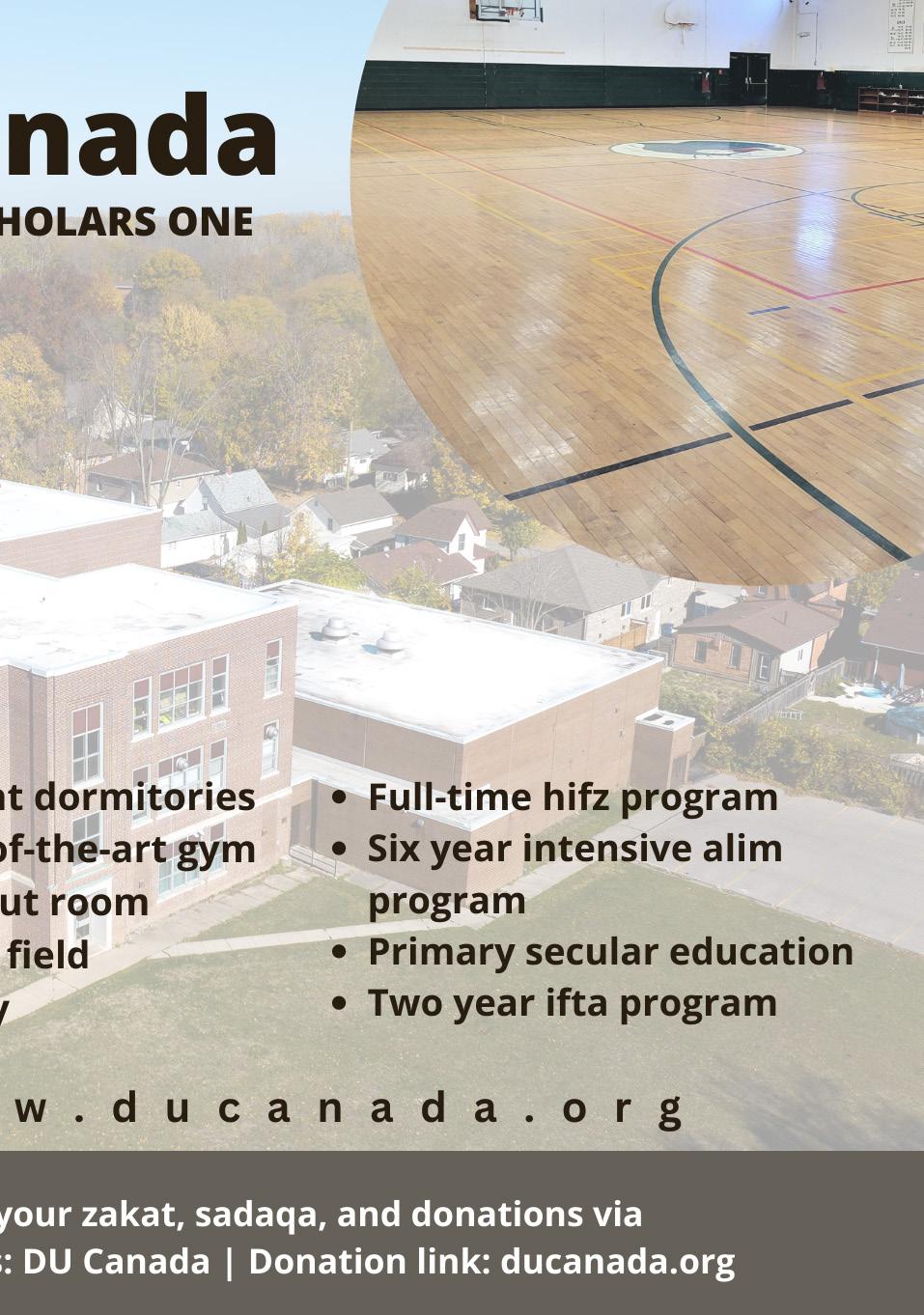
19 INSIGHT MAGAZINE


HE IS JUST A CALL AWAY
by Mayah uddin
20 INSIGHT MAGAZINE


A Bedouin once asked Nabi s , “Is our Lord so near that we can whisper to Him or far that we must yell out to Him?”
21 INSIGHT MAGAZINE
When My servants ask
voice. In another hadith, Rasulullah s reminds us that we are not calling upon a deaf one nor one
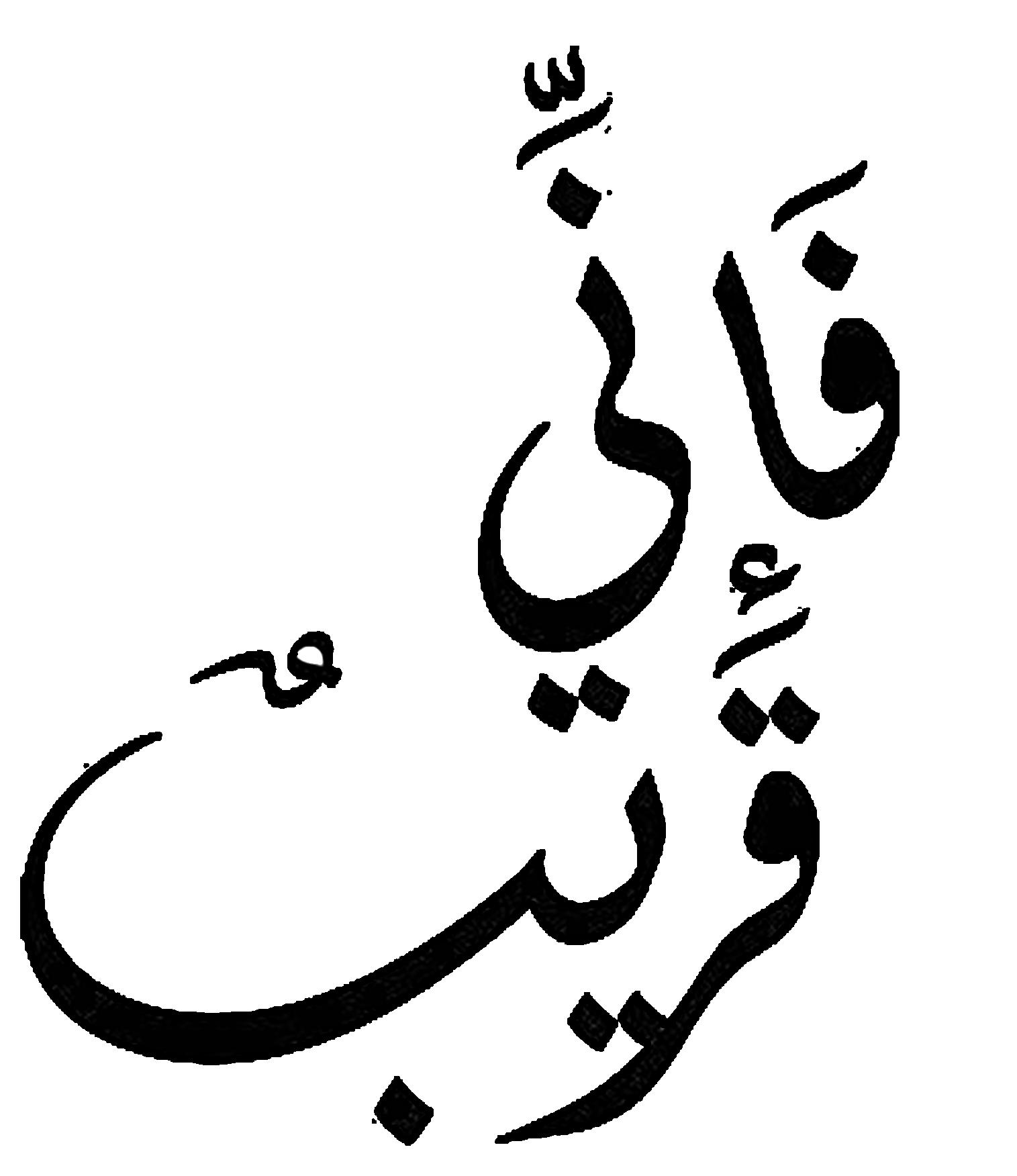
bering Him.
No need to yell, scream, holler or even raise your
know because I’m not there yet either! Or you can
22 INSIGHT MAGAZINE
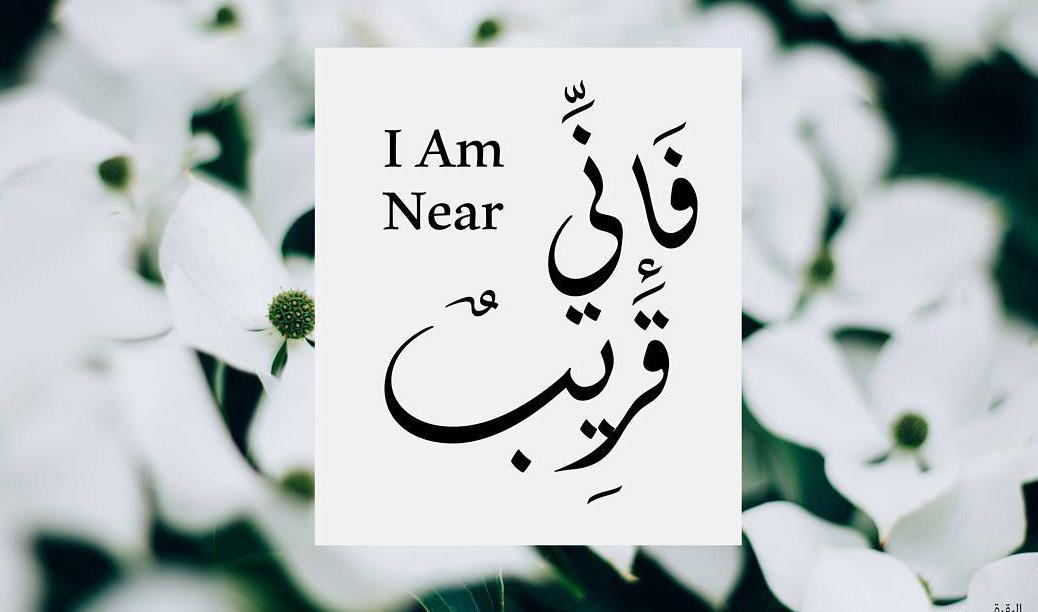

are allowed, Allah informs us of a takbir (a form of verbal dhikr), shukr (a form of practical dhikr) and
du’a (a form of dhikr), all of which are related to
This verse indicates that du’a is more readily accepted when fasting. As the hadith states, “the du’a of a faster is accepted at iftar.” Sayyiduna Ibn used to gather his family at the time of iftar and make du’a (Tafsir Ibn Kathir). Thus, it is in our best interest to spend more time and effort to invoke Allah when fasting and at iftar.
Going back to the analogy of making a call to reach Allah, think about the different requirements of making a phone call. Firstly, you must have a working device. Then, you must have functioning service which you probably paid for. If the bill is not paid in time, the service is disconnected and the call will not go through. You also must have an adequate signal to place the call as well. To enhance your call quality, your location makes a difference, considering the dead zones and signal issues in certain building structures which affect the signal. Time also matters, if you want to
23 INSIGHT MAGAZINE
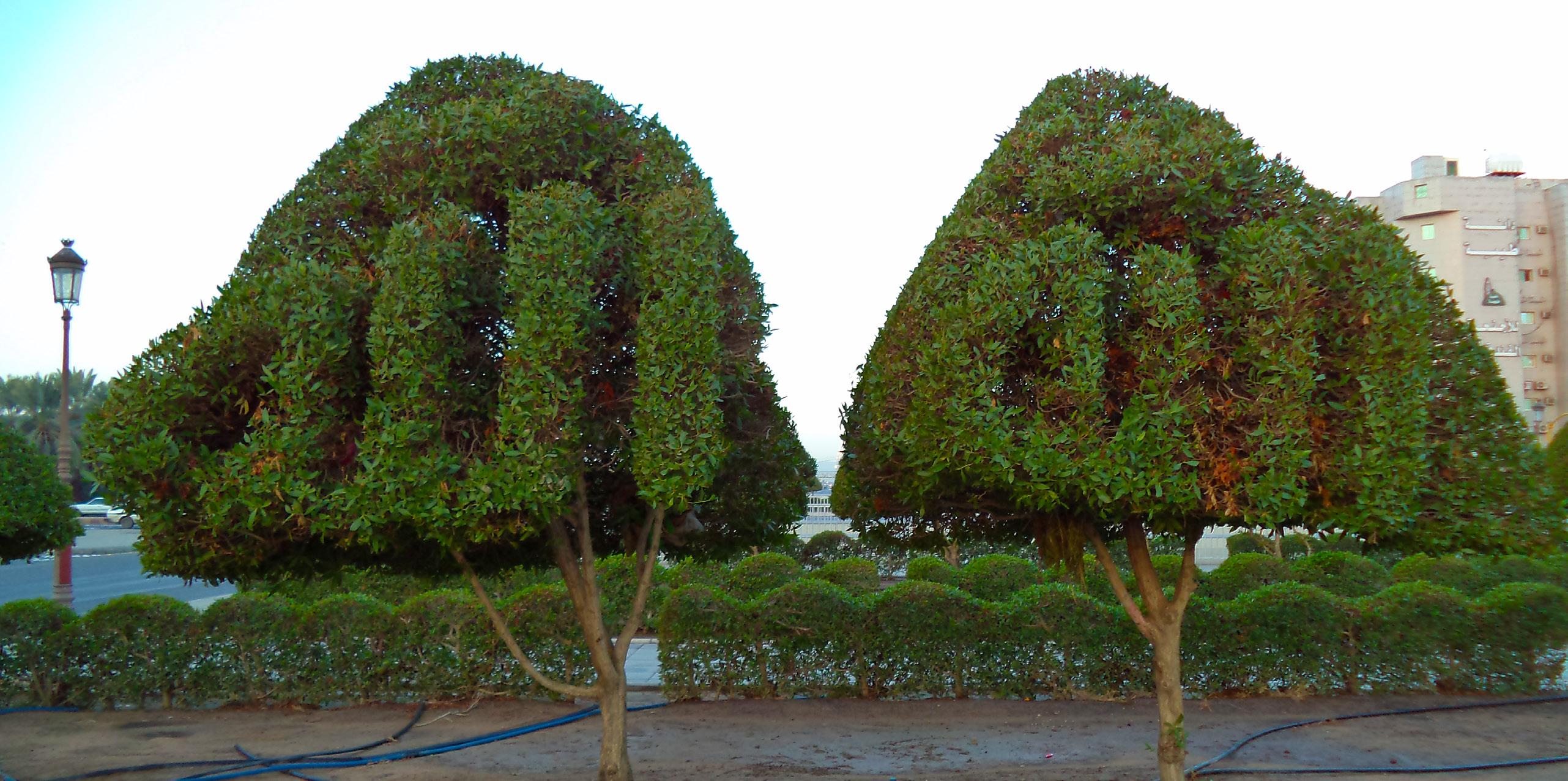
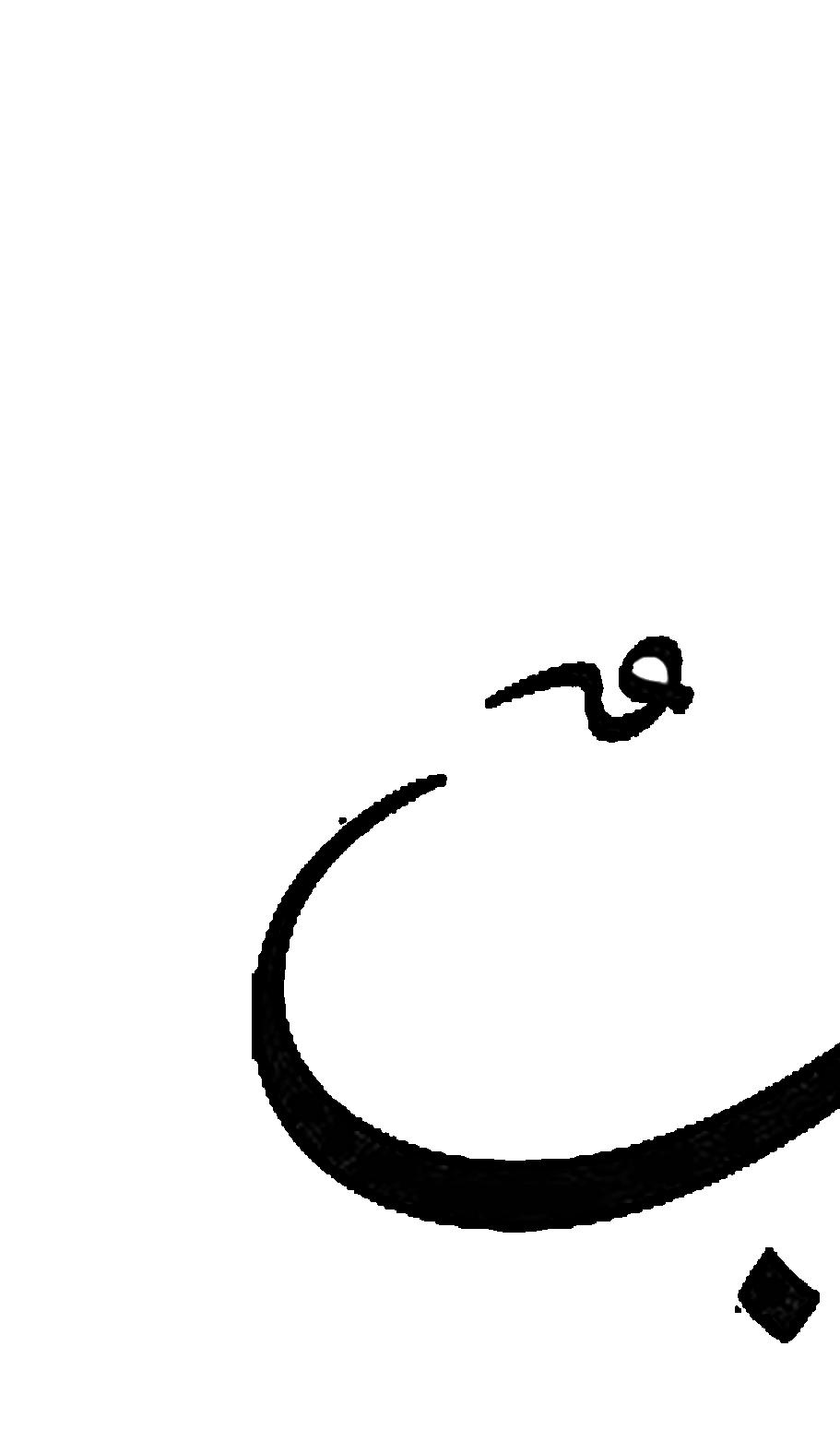
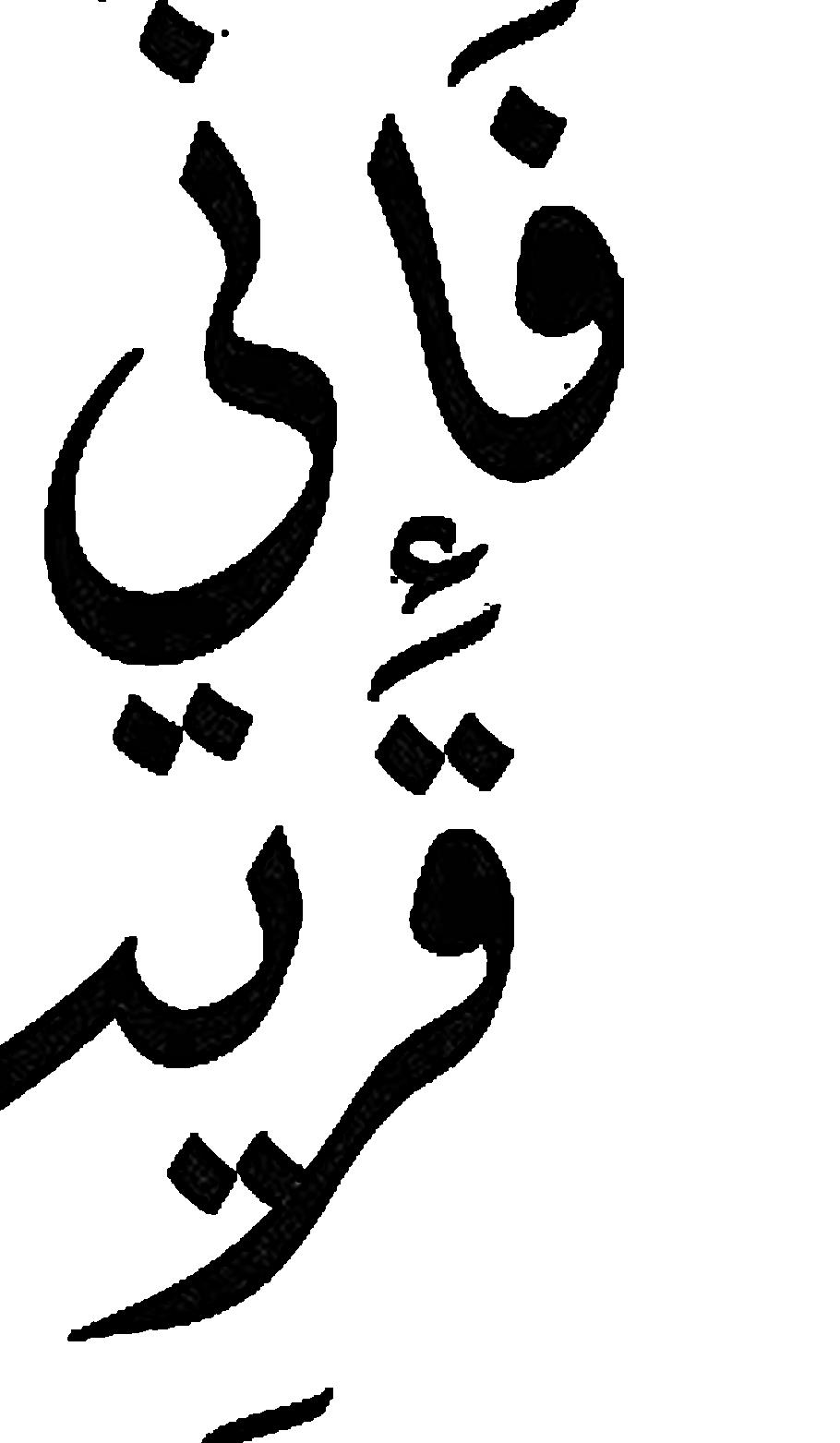
Q.I am an Uber driver and I sometimes find money or other items left behind from customers in my car. I usually keep such items in case the owner calls looking for it. However, after an extended period of time, am I still required to hold such items as a trust? Or would it be permis- sible for me to keep them or dispose of them?
AIn the aforementioned scenario, such items must be kept as a trust, and one should do their utmost to find the item’s owner. The amount of time an item must be kept as a trust would be in accordance with the value of the object (e.g., for items with higher value, one would search for a longer period of time and vice-versa for a lower-value item). If such an amount of time has passed that it is understood that the owner has likely given up their search for the lost item, the item may then be given away in charity to zakah-eligible indi- viduals. It would not be permissible for one to keep such items unless they are eligible for zakah. However, if the owner is lat- er found after giving the item to charity, the person who gave away the item can still be held liable for the item from an Is- lamic perspective.

26 INSIGHT MAGAZINE
fatawa
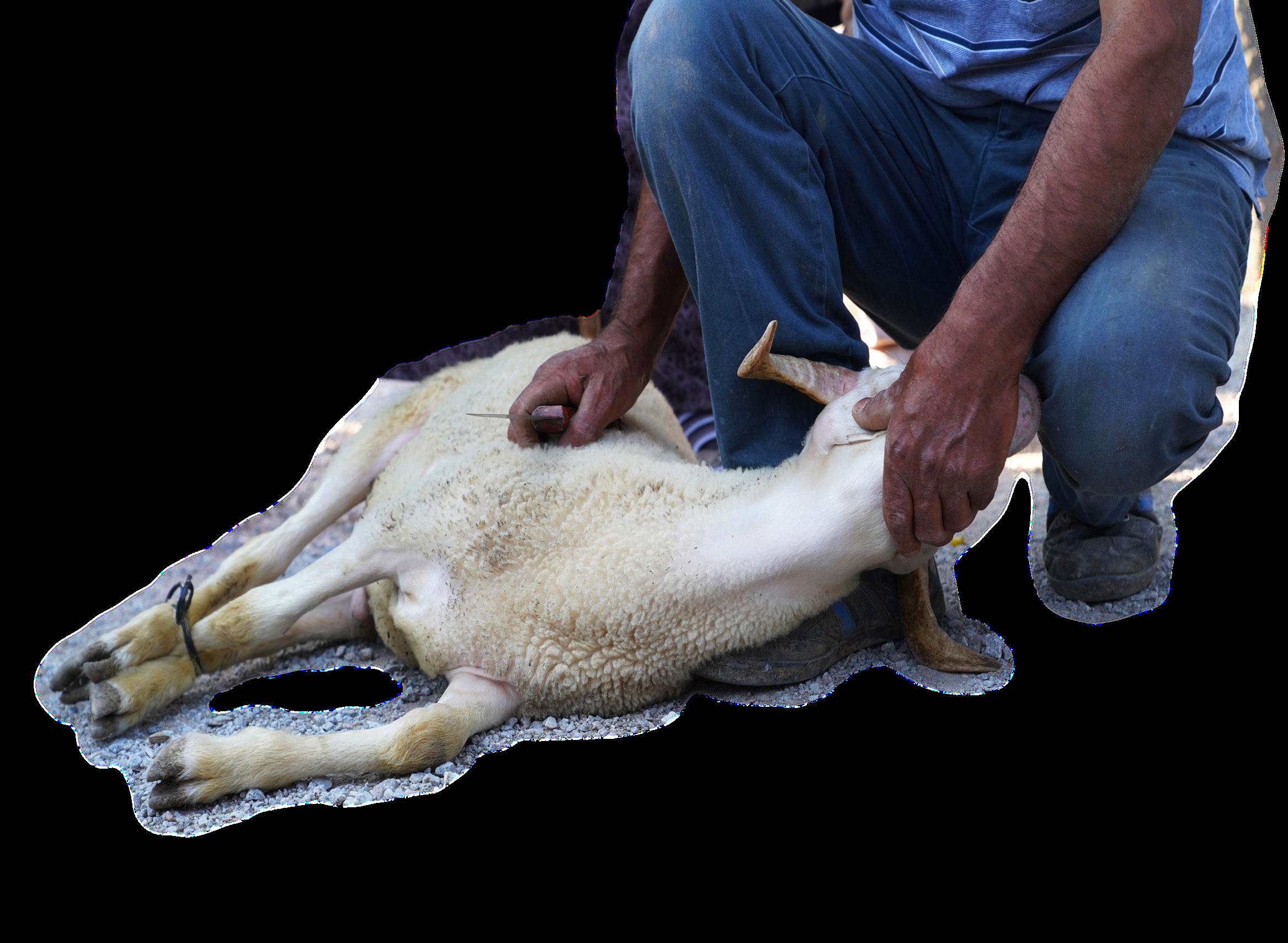
to a non-Muslim woman so that she can remove the hair using a laser? What if she uncovers very small parts, uses the laser and covers it before moving upwards in those areas?
A. A Muslim is obliged to cover their ‘awrah. A woman’s ‘awrah in relation to other women is the area between the navel and the knee. It is only permissible to uncover the ‘awrah in cases of necessity, such as necessary medical treatment. In the aforementioned scenario, the laser treatment will not be deemed a necessity. Hence, it would not be permissible to undergo such treatment even if the ‘awrah is uncovered little by little. However, one may look into laser hair removal machines they can use from home.
Q. I have recently been furloughed from my job. The past few months have been difficult for me financially;
however, I do possess more than nisāb. Is there any way for me to delay my udhiya until a later time when I am more financially stable?
A.The stipulated time for udhiya is from the ‘Eīd prayer (on the 10th of Dhul Hijja) until the sunset on 12th of Dhul Hijja. After this time, udhiya would not be valid. However, in such a situation, we would advise you to have an animal sacrificed in another country where the cost of sacrificing an animal is much less.
Q. Do I need to perform udhiya on behalf of my young children if the money in their savings account surpasses the threshold of nisab?
A.It is not necessary to perform udhiya on behalf of children even if they possess more than nisab.
Q. On ‘Eid or other occasions my children receive cash gifts from friends
27 INSIGHT MAGAZINE
and relatives. Is it necessary for me to keep separate account of such money to ensure it is only used on them?
Or would it be per missible for me to use that money however I deem fit?
AIn principle, gifts received for chil dren belong to the children. The parent/ guardian may choose to give the gift to the child, safeguard it, or use it in the child’s best interest. It would not be permissible for the parent to use the child’s money for his/her personal benefit.
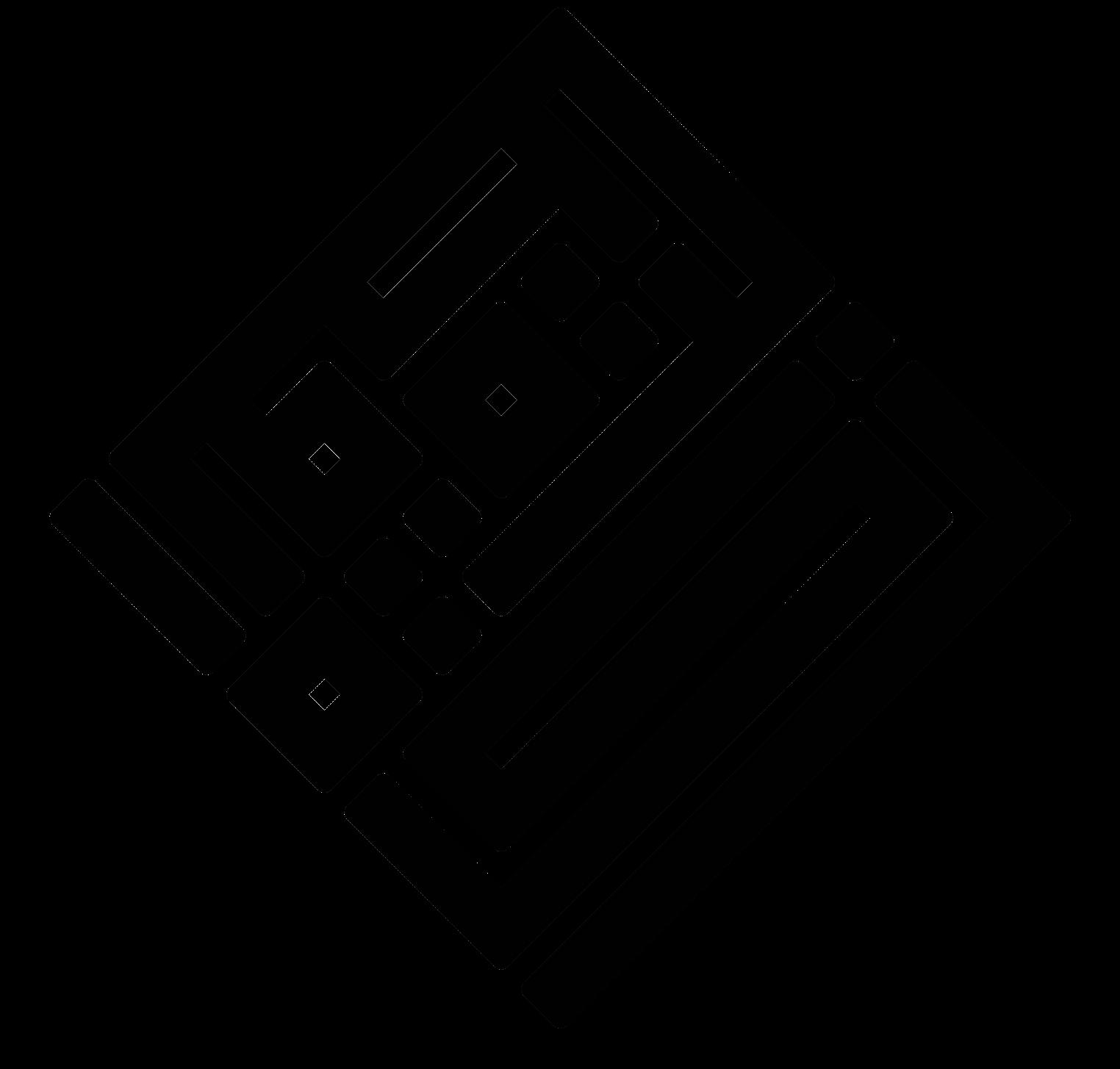
QI forgot to pay sadaqa al-fitr before last ‘Eid. What can I do now?
A: If a person did not pay their sadaqa al-fitr before ‘Eid, it would remain an obligation for them to do so. They would discharge it as soon as they are able to.
Q
. just learned that you have to do sajda tilawat is wajib. I don’t remember how many times I read such ayahs in in my life. What should I do?
raise money for a charitable cause. He wants to invite film stars or actors to attract a crowd for the fundraiser.
It is believed that this will exponentially help raise funds.
In the current environment, people have also succeeded in raising large amounts with the help of different celebrities. Is this approach
. We should not associated with film stars as they are generally involved in many types of sins. Furthermore, inviting them would be a form of promoting them and their work, which is not permissible. The purpose of raising funds for charity is to gain the pleasure of Allah. There is no benefit in raising charity if the method of doing so involves sinful or unethical practices.
Thus, one should look toward some other form of advertising and raising of funds that would not require them to promote sin. Consider the following ayah, “And help each other in good and piety and do not assist one another in evil and transgression” (5:4).
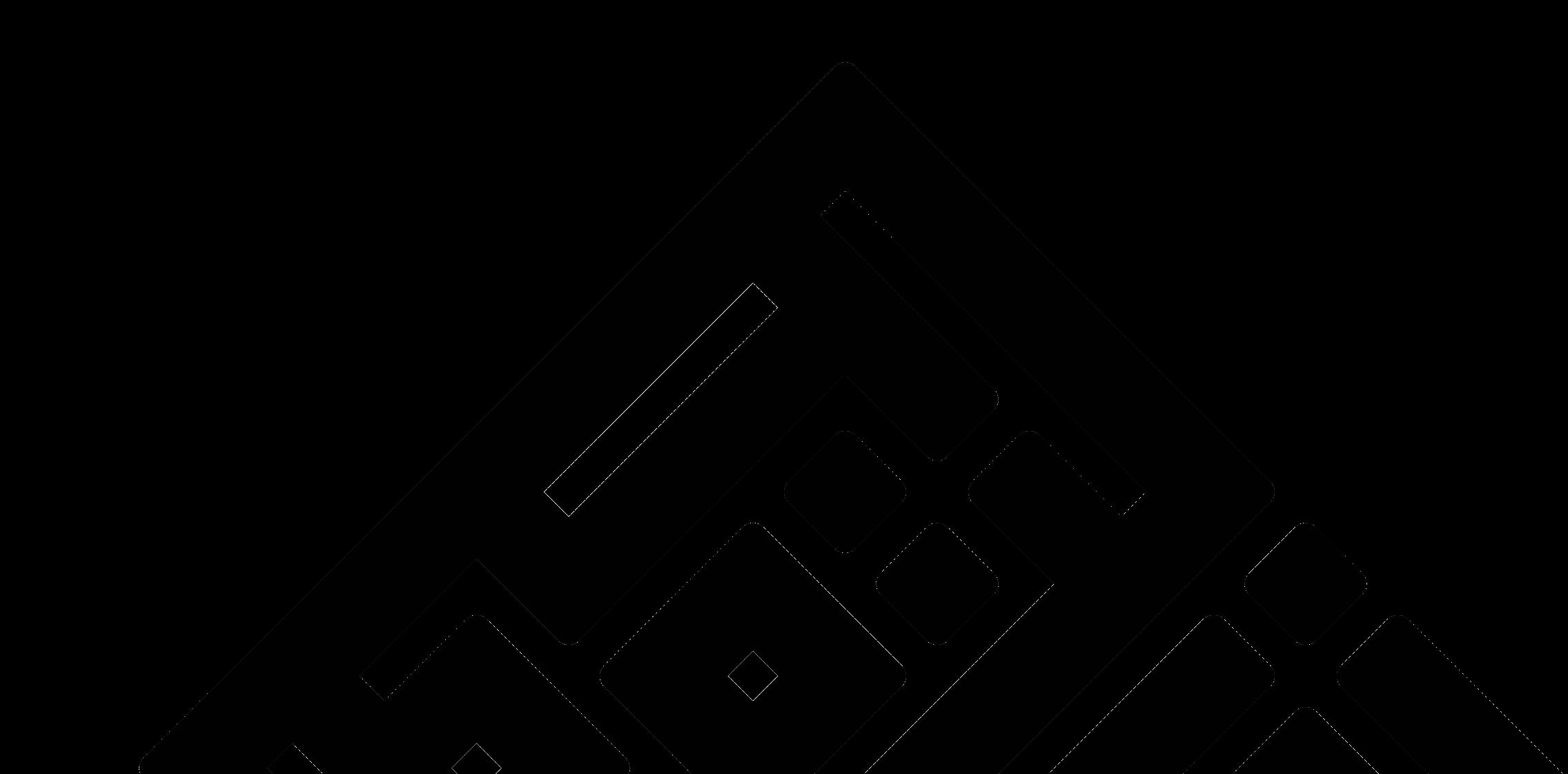
Five years ago, my friend bought me a house, and we agreed that I would pay him back over the next twenty years. However, five years after the agreement, he passed away. The heirs are now demanding that I pay back
diately and are not willing to wait 15
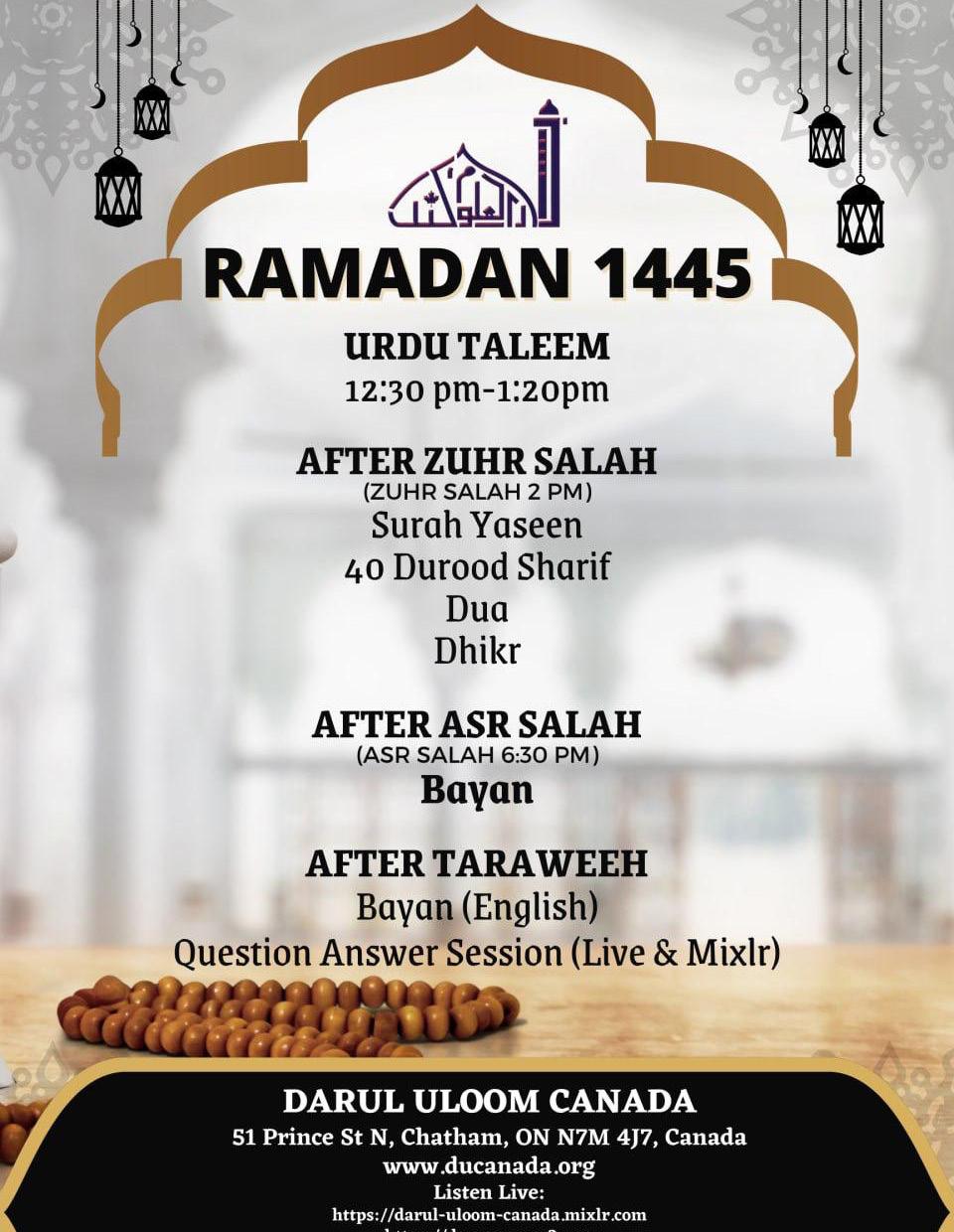
to pay them in installments. Are they allowed to demand immediate repayment, or are they required to honor the original agreement?
A. In principle, any debt owed to a person during their lifetime that they could not collect will be collected by their heirs after they pass away.
Regarding the specific scenario in the query, it will first need to be assessed whether the debt was in the form of a loan or delayed payment from a sale. A loan can be demanded immediately, whereas the heirs must honor the terms of a sale agreement.
If the deceased had initially bought the house and sold it to you, and an agreement was made that the debt would be paid off in installments, the debt would still be paid off as agreed, and the heirs may not force him to pay off the full debt immediately.
However, if the deceased had loaned you money to buy the house and it was agreed that the loan would be paid off in installments, the heirs may demand that the debt be paid off instantly. However, it is better for them to uphold the original contract.
The Messenger of Allah s has said, “Whoever gives respite to a needy person or a debtor, Allah ta’ala will grant him shade under His throne on the Day of Judgment, the day when there will be no shade other than His shade” (Tirmidhi),

30 INSIGHT MAGAZINE

the Creed of the Ahl Sunna wa
al-Jama’a
Part 1

32 INSIGHT MAGAZINE
by Mujjadid Alfe Thani Shaykh Ahmed Sirhindi
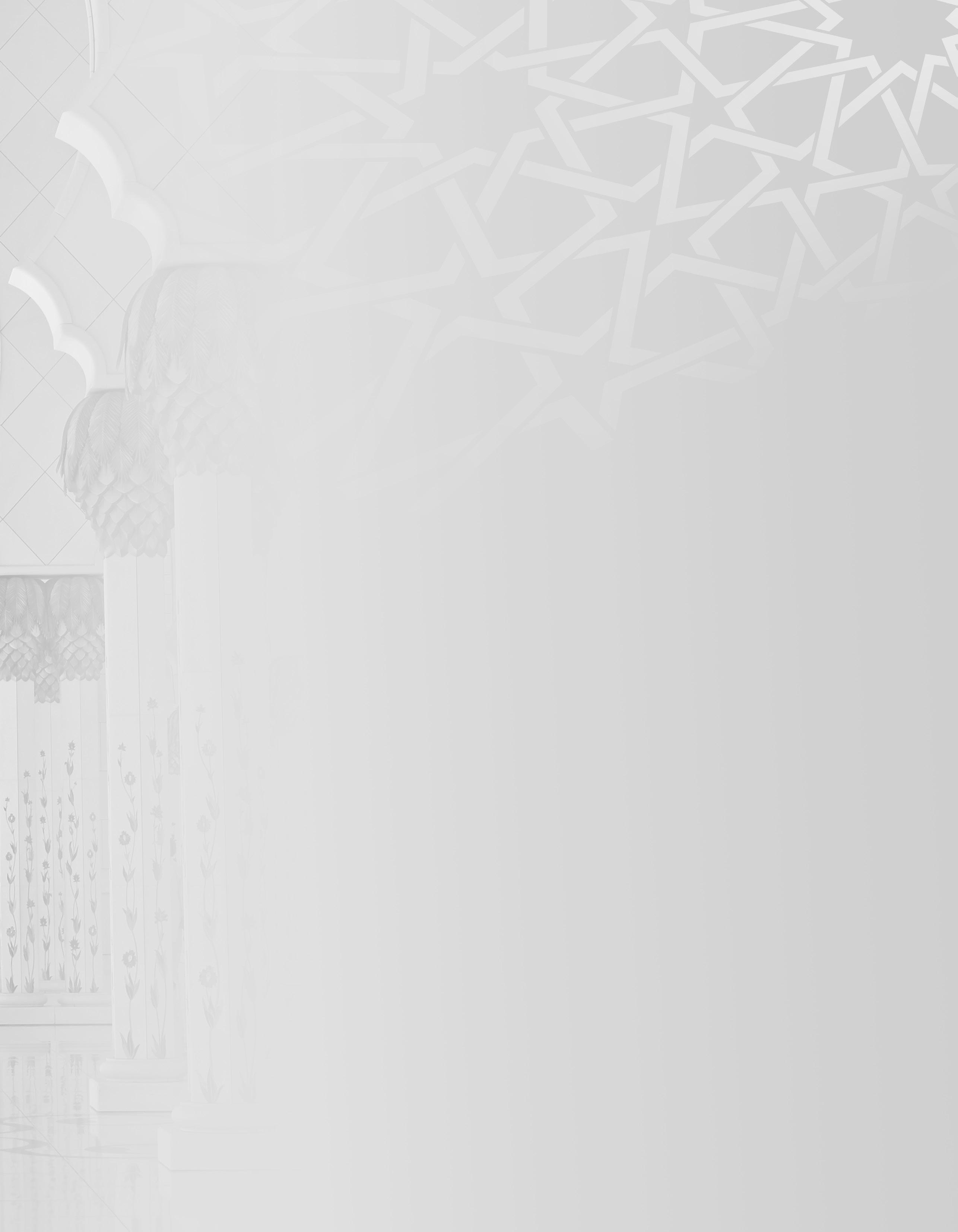
This letter is lengthy and important as it expounds the belief [of Ahl Sunna wa al-Jama’a]. Qazi Thana Ullah took excerpts from this letter in the beginning of his primer, Ma la budda minhu, under the chapter of creed. Ghulam Ali Dehlawi said of this letter, “There is immense benefit to be taken in Ilm al-Kalam from this [maktub]. It should be copied [as a separate booklet] and distributed among the people.”

34 INSIGHT MAGAZINE

tionate and disproportionate state of all things, the components and the whole; He knows everything in its specified time all at once. In one instant, He knows Zayd existing, non-existing, in his mother’s womb, young and old, dead and alive, standing, sitting and leaning, prosperous and penurious, happy and anguished, powerful and subjugated, in the purgatory, on the Day of Judgment and in the bliss of Jannah. There is no enumeration of relative states existing with Him because enumeration of relative states requires disparity in time and a multiplicity of eras [e.g., Zayd is happy at one time and sad in another; both states cannot occur at the same time, thus the need for disparity of time], and that concept does not exist here. Eras do not affect Allah nor does taqaddum (precedence) or ta’akhkhur (postponement) [nor a before or after]. The relation between the knowledge of Allah with all known things is a relation that literally encompasses everything that is known, and that relation itself would be of an unknown modality (kaifiyat) which like His attribute of knowledge is unique and incomprehensible. He knows all things all at once. Let me bring this closer to our understanding with a single example:
35 INSIGHT MAGAZINE
Look, it is possible for one person to know a word in all its different inflections, forms, and structures and to know its contrasting meanings all at once. I mean to say that he may know this word in terms of being a noun, verb, particle, three-lettered root or four-lettered root, desinential inflective [mu’rab], non-desinential inflective [mabni], declinable [mutamakkin], non-declinable [ghayr mutamakkin], triptotical [munsarif], non-triptotical [ghayr munsarif], specific, non-specific, past tense, present tense, future tense, imperative, or prohibitive all at once. In fact, it is permissible for one to claim that he sees all the different forms and grammatical considerations in the word in all its varieties all at once. So, when opposites can conceivably amalgamate in a science [like grammar], then why not in the knowledge of the Necessary Entity, especially when ‘for Him belongs the highest description [i.e., attribute | 30:27].’
This much should be understood that the amalgamation of opposites is a superficial reality, otherwise there is, in reality, no contradiction between them at all. This is because Allah saw Zayd existing and non-existing at one and the same time, but in this very instance He
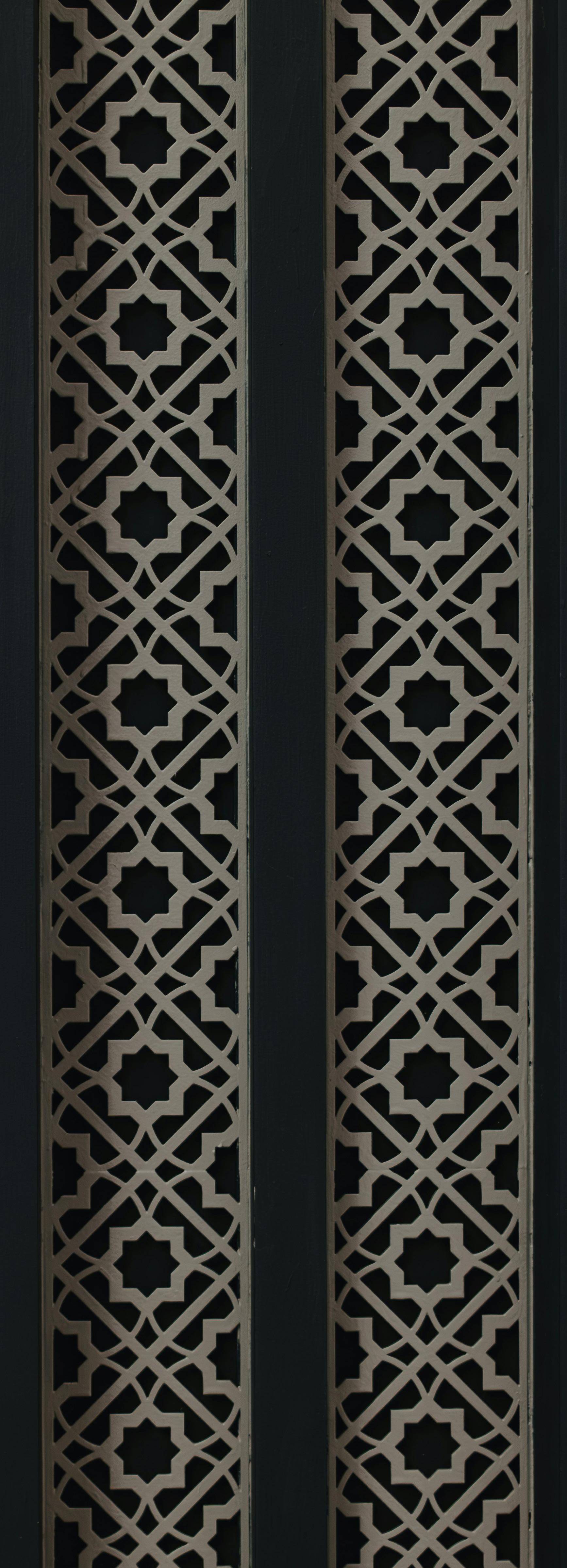
36 INSIGHT MAGAZINE
knows that his time of existence is, for example, 1000 A.H., while his preceding period of non-existence is one year before that and his succeeding period of non-existence is 1100 A.H. In reality, there is no contradiction between any of this. By this study, it is clear that His knowledge is related to changing elements while His knowledge itself is unchanging and non-diversified.
Likewise, the possibility of huduth (coming into being; also, non-eternal) is not from His attributes.
Likewise, the Kalam (word) of Allah is a simple word which preexisted as an eternal attribute, and He speaks with that very Word. Imperative, prohibitive, inquiry, tamanni (gram. statement expressing hope) and tarajji (gram. statement expressing desire) all emerge from this Word, and all revealed scriptures and revealed parchments are from the page of this very Kalam.
Likewise, there is one Doing of Allah by which all things from the beginning to the end came into existence. Therefore, Allah says, “And our command is but one, like the glance of any eye” [54:50]. This ayah is indicating the very reality just mentioned earlier. Giving life,
death, pain, and blessing are all tied to this very Doing. Furthermore, to bring into existence and to take out of existence also originates from this Doing. Thus, the Doing of Allah too is not enumerative by nature of the relative states of things. All creation from the beginning to the very end of time come into existence in their specified times with all their relative states at once. [understand that] This oneness of relative states is as unique and incomprehensible as the Doing of Allah itself.
Allah is not one with anyone nor is anyone one with Him. Though, He is an All-encompassing Entity by which He has proximity to all things. This encompassing nature and His proximity are not easily understood by our inferior intellect. A tangible proximity does not behoove Him. He is also free of what we perceive of Him from spiritual clairvoyance or observation because all contingent beings [like the human] can never perceive anything more than sheer ignorance of His essence, attributes, and doings. We must believe in the Unseen, and whatever seems exposed of Him [as, for example, seeing Him in a dream] or seems observable to us by which we sur-
37 INSIGHT MAGAZINE
mise our seeing Him should be negated under the la’ of negation [in la ilaha illa Allah].
Thus, we believe that Allah is All-encompassing and He is close to everything and with them, but the nature of this encompassment and proximity is beyond our intellectual capacity to understand.
Allah is not one with anything [this is a rebuttal of pantheistic belief], nor is anything one with Him. Allah is Sovereign in His being, attributes, and His doings. He is not dependent on anything for anything. Allah is free of any deficient traits or signs of huduth. Just like He is not corporeal or of corporealness, likewise He is not spatial nor is He confined by time. All the attributes of perfection are assigned to Him. Of His consummate attributes, there are eight: Life Knowledge Power To intend To hear To see To speak To originate/form/create
Allah is eternal and infinitely Pre-existent, and nothing but Him

38 INSIGHT MAGAZINE

holds that status. All contingent beings be they material or immaterial, be they souls or intellects, the constellation or elements are all the creation of the Almighty one. Only He brought them out from non-existence/non-being to existence/being. These contingents are as dependent on Him in their continued existence as at the time of their coming into being.
Allah has made the means (asbab) a veil for His doings and His infinite wisdom. The people of insight who have applied the surma (antimony) of adherence to the ways of the Prophets know that the means, which are dependent on the Lord for their existence and continuity, who see their own execution and undertaking by Him, who are purely inanimate beings, cannot produce any effect, create, or originate anything else because the means are as dependent as they are. Indeed, there is One power that produces everything behind these means and grants them the most feasible and appropriate qualities. People of intelligence can tell by any movement in an inanimate thing that there is something behind it moving it because they know that movement and activity has no association with a spiritless and inanimate being. There is
39 INSIGHT MAGAZINE
certainly an actor behind the scene animating it. Yes, for the foolish one, the movement of the inanimate, unliving thing can conceal the doing of the real actor. His dull intelligence will accept that the cause of the action of the inanimate being is the inanimate being itself, thus blinding him to the true doer of the action.
One group sees perfection in the attributing of all things directly to Allah without them being borne of any means. These people don’t realize that by leaving out the asbab [from the process of creation], they, by corollary, dismiss the divine wisdom behind the whole process of means, which in itself contains numerous benefits and advantages.
Our Lord, You have not created all this [i.e., the heavens and the earth] in vain [3:191].
The way of the prophets of Allah was to subscribe to the process of means while simultaneously leaving the outcome of all matters with Allah. Therefore, Ya’qub e was worried his sons would be struck by the evil eye and advised them, O my sons! Do not enter from one gate, but from different gates). While submitting to the asbab, he placed the outcome in the hands of Allah and said, And I cannot avail
you against [the decree of] Allah at all. The decision is only for Allah; upon Him I have relied, and upon Him let those who would rely [indeed] rely [12:67].
Allah commended Ya‘qub e for this insight so much so that He attributed it to Himself and therefore says right after, And he, indeed, is a man of knowledge from that which we taught him, but most of the people do not know [12:68].
In the Qur’an, Allah has indicated to the Prophet a to use the asbab at hand and says, O Prophet, sufficient for you is Allah and for whoever follows you of the believers [8:64; i.e., the means here are: and

40 INSIGHT MAGAZINE
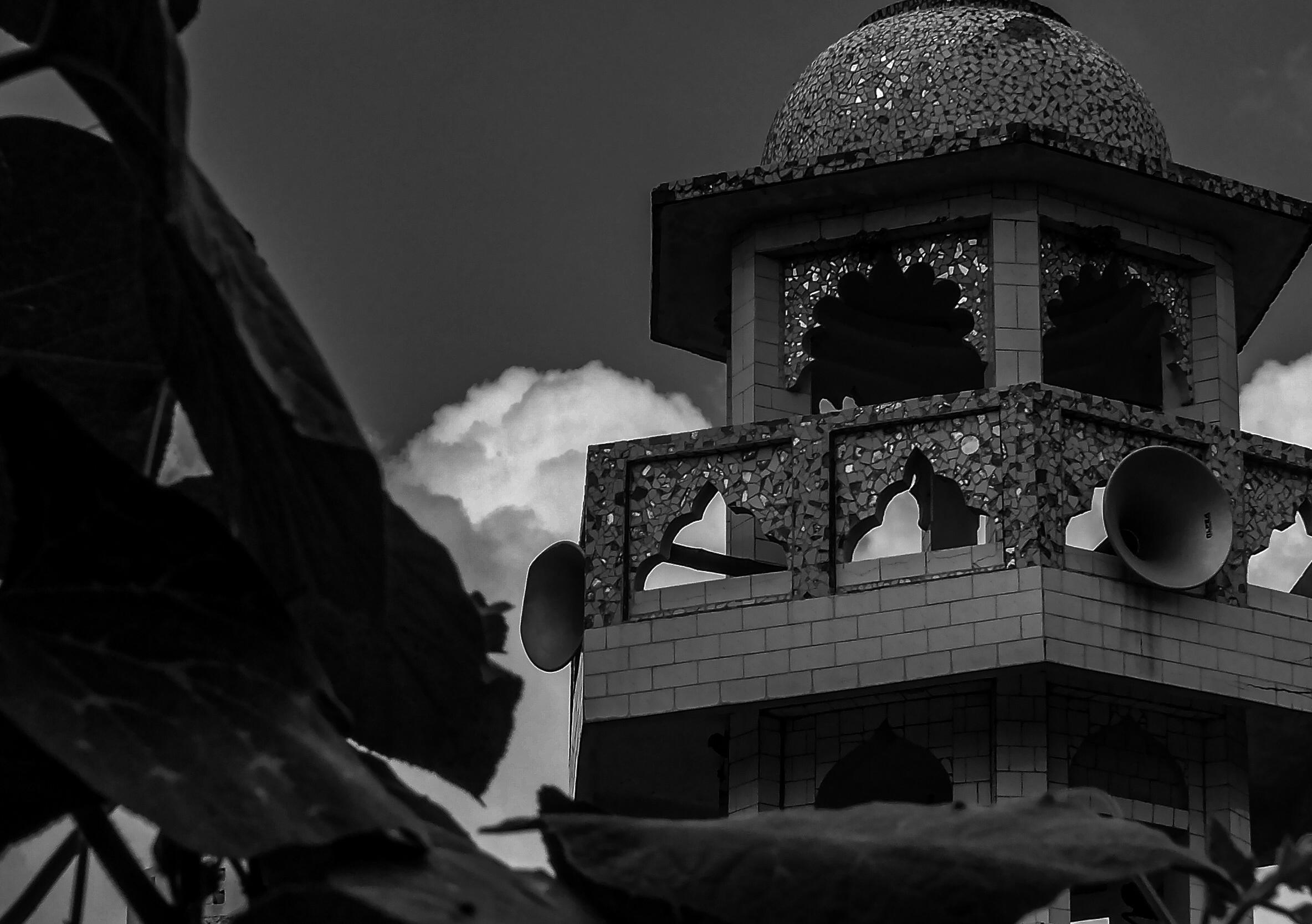
for whoever follows you of the believers].
As far as the effect of these means is concerned, Allah may create the effect so that these means produce the desired effect, but at times He may not, and thus, even after using the means, nothing happens. Therefore, we witness this reality about the asbab all the time.
But in general, outright denial of the effect of the means is plain obstinance. One should believe in the efficaciousness of the asbab with the understanding that the effect and its apparent cause are all from
Allah. Relying on the asbab is not opposed to reliance on Allah as many defective thinkers believe is the case. In fact, using the asbab is perfect reliance on Allah. Ya‘qub e defined complete reliance on Allah as using the asbab and then leaving matters with Allah and says, upon Him I have relied, and upon Him let those who would rely [indeed] rely [12:67].
Allah intended Good and evil and He Himself is their Creator, but He is pleased with good and displeased with evil. The subtle difference between intending good and
41 INSIGHT MAGAZINE
evil while being pleased with good and displeased with evil is a matter which has been understood only by the Ahl Sunna wa al-Jama‘a. All other sects failed to understand this difference, and thus, they fell into the chasm of deviation.
Allah has granted His servants the will to earn their deeds through their own efforts. The Creator of those very deeds is Allah alone while the earner of those deeds are the servants. It is the way of Allah that when the servant intends to do something, Allah creates it along with the doing of the servant, and since the doing of the servant is of his own free will and effort, he is worthy of praise, reward and punishment accordingly.
The believers will see Allah in paradise without a doubt, without modality, and without precedent
[from anything in creation].
This beatific vision is that matter which most sects beside the Ahl Sunna wa al-Jama‘a deny. Certain sects accept it but not without modality, direction and limits.
The Prophets are the mercy for the worlds. If they didn’t exist as go-betweens, then who would have guided us deviants to the essence and attributes of the Necessary Entity and who would have differentiated for us between what pleases and displeases our Blessed Lord? Our faulty intellects are incapacitated without the prophetic mission and our defective comprehension without adherence to their mission is abject. The sending of the prophets is a clear proof (hujjat baligha) that eternal reward and punishment in the Hereafter hinge on. For sure,

42 INSIGHT MAGAZINE
the prophetic mission is a mercy in itself because it is the means of acquiring knowledge of the essence and the attributes of the Necessary Entity, and this very knowledge incorporates all goodness in this ephemeral world and the everlasting happiness in the Hereafter. This very sacred mission helped us discern what is suitable for the High and what is inappropriate.

Our blind intelligence branded by the iron of transience could never know which names and attributes and deeds are worthy of the Necessary Entity so that we strive for the worthy and refrain from the unworthy. In fact, sometimes this deficient intelligence sees the defective as perfect and the perfect as defective. This whole discernment between the worthy and unwor-
thy according to the faqir transcends all inner and outer blessings (ni‘mat). Despicable is the one who attaches the unworthy and unbefitting to the Lord Most High [like the pagans claiming angels are the daughters of Allah]. To differentiate falsehood from the truth and to separate the type of worship that is worthy of Him from that which is not is the singular achievement of the Prophets f. It is only through the Prophets f that we are called to path of haqq and servants are guided to felicitous proximity and spiritual communion to Allah. It is through them that we are informed of the ways to achieve the pleasure of Allah. It is by their blessing that we learn the permissible and im-
43 INSIGHT MAGAZINE
permissible usufructs we have in His of the heart; and, purification of the
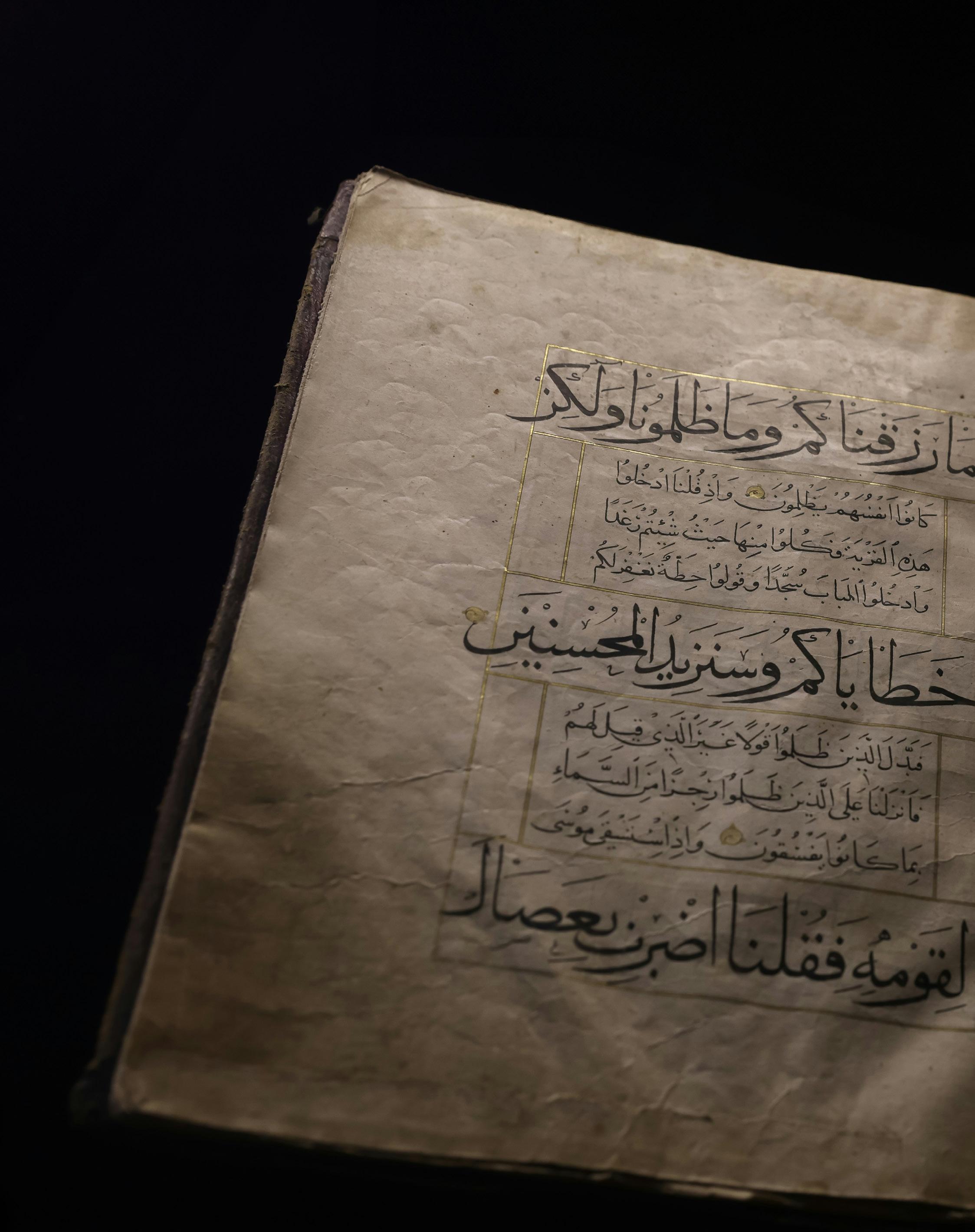
44 INSIGHT MAGAZINE
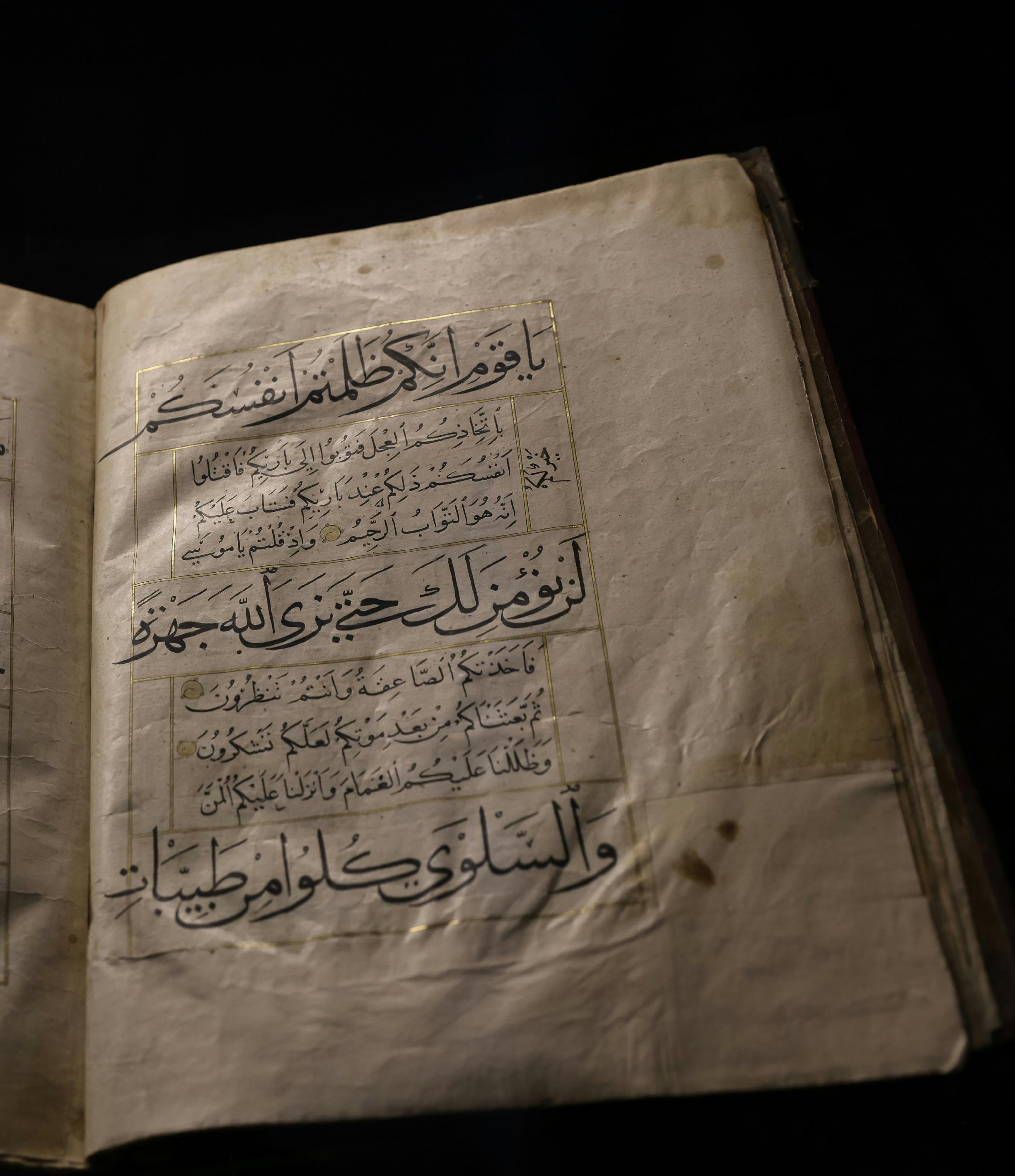
45 INSIGHT MAGAZINE
Allah save us from this tribulation by the honor of our beloved Prophet a.
It is learned from this that whatever commandments and laws are laid out by the Prophets f too are a mercy from Allah through and through and not how many heretics assume from the inconveniences associated with the Law that they are irrational and say so brazenly, “O brother, what kind of mercy is it to charge the servant with certain rigorous tasks and then say that if they fulfil it, they will go to paradise otherwise, they will enter the Hellfire.” Ask these deniers why Allah should not require His servants to do good deeds and why should He leave them free to eat and drink and live as they want. Maybe these unfortunate, shortsighted deniers do not realize that gratefulness to the Giver and Sustainer is of necessary creed, and that submission to these laws are expressions of that gratefulness. Therefore, even from a rational point of view, these Shari‘a requirements and laws are absolutely necessary. In addition, the order of this world stands on the fulfillment of these Shari‘a laws. If everyone is left to their own, then corruption and evil will prevail. Every slave of his desire would seek after the life and wealth of the other and would commit profligate sin and do him injustice. In this way, he would destroy himself and the other. If the admonitions and proscriptions of the Sharia did not exist, then I seek refuge in Allah, but it would be total chaos.
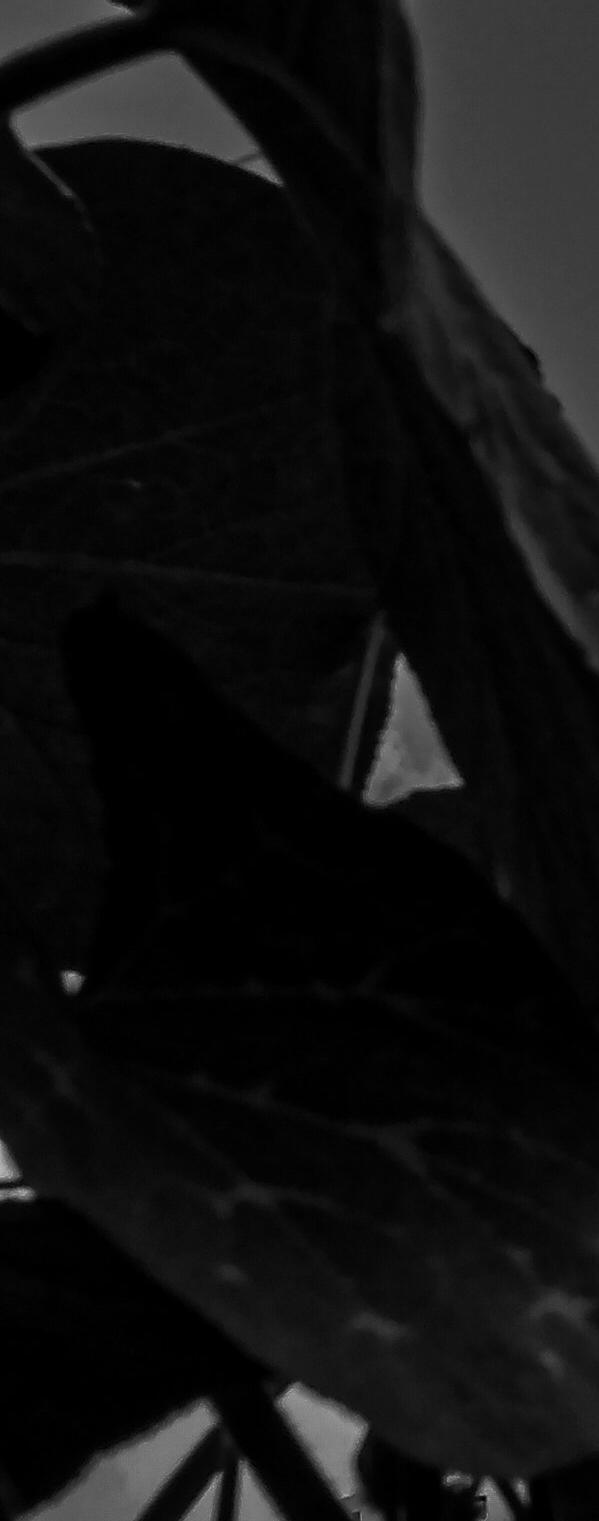
46 INSIGHT MAGAZINE
